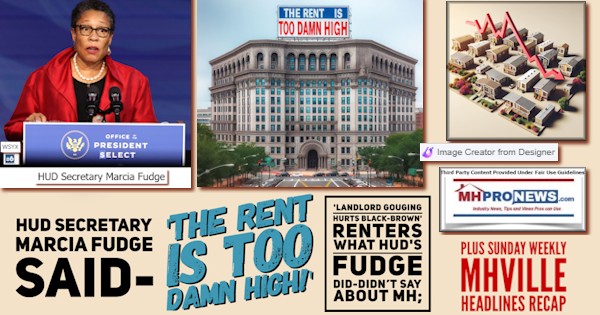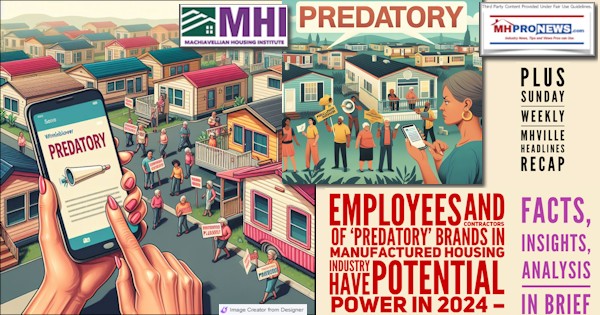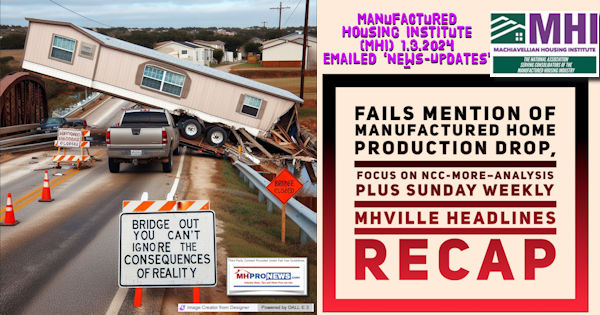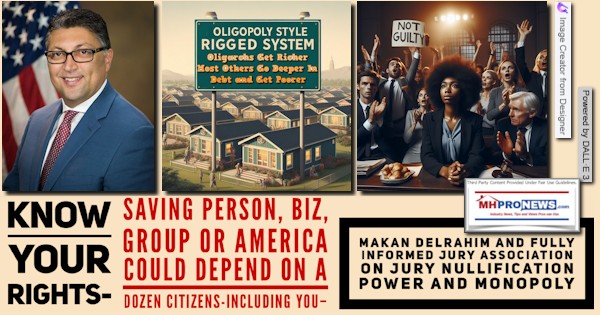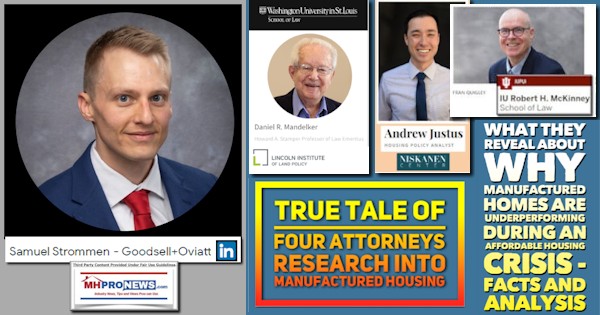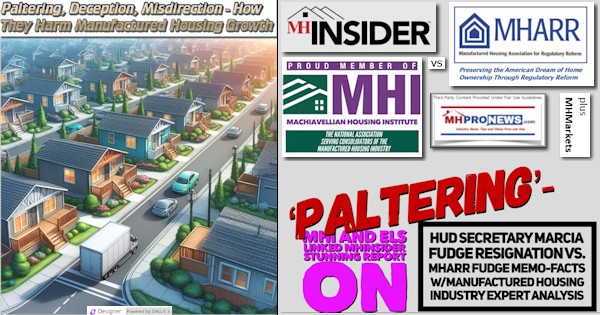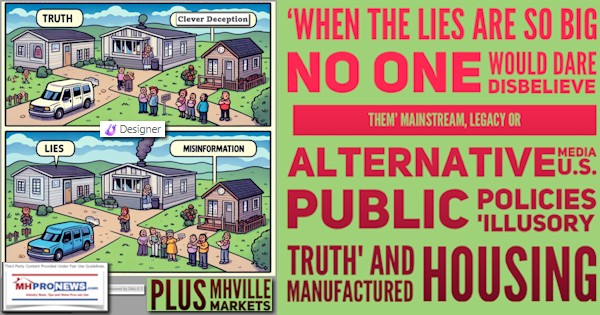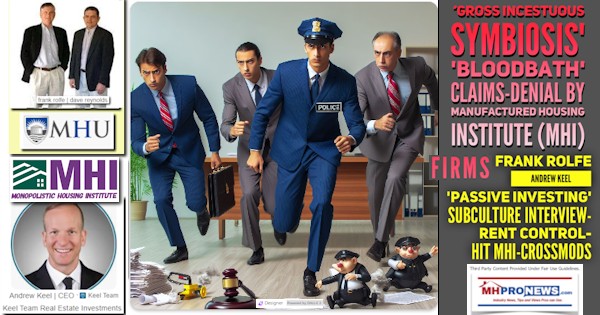
Antitrust and consumer law researcher Samuel “Sam” Strommen observed: “Pernicious forces are…subsuming an industry [manufactured housing] rife with lack of oversight, and praying upon the vulnerability of [others] in a gross, incestuous symbiosis [bold emphasis added].” Manufactured housing is demonstrably badly underperforming on new home production during an affordable housing crisis. That fact tees up the relevance of exploring that headline topic because it sheds significant light on the reasons why that underperformance may be occurring. Two named members of the Manufactured Housing Institute (MHI) are explored in this report in the context of an interview of Frank Rolfe by Andrew Keel. Dictionary defines “incestuous” as “being so close or intimate as to prevent proper functioning.” The Collins definition of incestuous is more literal: “An incestuous relationship is one involving sexual intercourse between two members of the same family.” Vocabulary says: “When something is gross, it’s disgusting.” Oxford Languages says gross means: “(especially of wrongdoing) very obvious and unacceptable; blatant.” Rolfe’s firm has reportedly been an MHI member for several years. While Keel is per a source that claims knowledge not a direct MHI member, there is evidence of Keel’s attendance at an MHI event. Remarks on the Clayton Homes-backed and MHI-branded CrossMod® homes and about a coming “bloodbath” are by Rolfe, which are shown in context below. Rolfe’s slams quoted in context below on MHI are only his latest. MHI leaders have been asked about them.
For those industry professionals who don’t already know, Rolfe seemingly revels in being notorious, which has brought him years of ongoing notoriety. It is worth noting that paltering is arguably at play in what follows. Rolfe and Keel will say something that could cause some heads to nod, but then other statements are made that ought to result in thinking and skeptical minds pondering if a statement is sincere, spin, mistaken, or otherwise deliberately misleading.
Keel and Rolfe were contacted by MHProNews days prior to this article being published for comments. An MHI attorney and others involved with MHI were contacted in advance of publishing this report for reactions too. More on that and another MHI member firm’s remarks to MHProNews that contradict a specific Rolfe assertion that Keel didn’t question are found in Part II.
Rolfe, Clayton, and several other MHI members were spotlighted in a notorious light a few years ago in the viral hit video slam errantly dubbed “Mobile Homes” on HBO’s Last Week Tonight with John Oliver. It was our MHLivingNews sister site that did the research which connected the dots between the firms Oliver satirically critiqued and the common feature of their membership or involvement with MHI. Thus, the ongoing questions about MHI’s enforcement, or lack thereof, of their so-called code of ethical conduct.
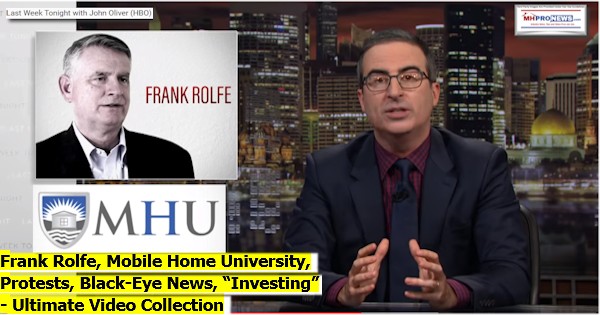
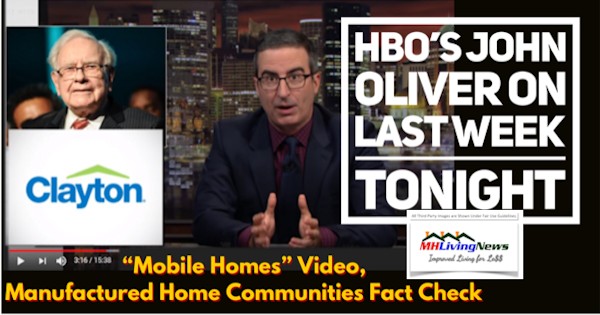
A simple Google search revealed the following. According to Andrew Keel of Keel Team Real Estate Investments.

The 5 main things to stay on top of for successful mobile home park management:
- Occupancy
- Collections
- Water/ sewer recapture
- Property maintenance
- Budget/Actual difference
It’s simple but not easy.”
Notably unmentioned in the above are topics such as resident relations, resident satisfaction, or how a business deals with its employees, investors, or contractors.
Keel has this on Apple Podcasts: “Passive Mobile Home Park Investing Andrew Keel.” Oxford Languages defines “passive” as: “accepting or allowing what happens or what others do, without active response or resistance.” As the words “not easy” and that 5-point list suggests, for many investing in “mobile home parks” [sic] that doesn’t sound “passive.” The case can be made that it is even less passive when employees, contractors, or residents are less than happy. Yet as Part II of this report with analysis will note, there is ample evidence that Rolfe’s residents and scores of employees are less than thrilled.
It isn’t necessarily a sin to market. Podcasts, websites, social media, and meetings/events are all possible forms of marketing. The question of if marketing is deceptive or misleading can lead to legal or moral questions that this news-analysis will shed light on in Part II.
For instance, it isn’t only Keel’s podcast that used the term “passive.” Amazon offers this: “Passive Mobile Home Park Investing : Andrew Keel: Audible Books & Originals Drawing from his dual roles as an appraiser and mobile home park owner, Erik offers invaluable insights.” So, for good or ill, Keel seems to have deployed that “passive investing” terminology intentionally and repeatedly. Yet Keel’s own website says that part of his plan to “successfully implement his management strategy” “Andrew’s team is known for being VERY hands on, they usually move on location during the first several months of ownership.” Again, moving onto a local and being “very” hands on that hardly sounds passive.
Another podcaster said this: “Leveraging Time & Talent With Andrew Keel Jun 24, 2022 — On this episode of the Mario Dattilo Show Podcast, Mario talks with Andrew Keel from the Keel Team. … I went to Frank and Dave bootcamp. …”
Perhaps more significant is this from self-proclaimed: “Mobile Home University” (MHU) “An Interview With Andrew Keel, A Mobile Home Park Boot Camp Attendee | This is Frank Rolfe from MHU.com. We’re going to be discussing with Andrew basically his history and chronology of events and successes and lessons learned in…” This is clear evidence that a circle of individuals in that space interview and cross promote each other.
So, there are reasons to think that the “Illusory effect” is deployed and what longtime award-winning CNN reporter turned award-winning pundit Chris Plante calls a “circle fest in a hot tub” is at work in this scenario too. MHProNews will briefly consider in Part II what might be described as the “subculture” of manufactured home community (a.k.a. in their parlance, “mobile home park” or “trailer park”) investing, a topic that merits a separate report.
With Strommen’s observation about gross and incestuous relationships in mind, Equity LifeStyle Properties (ELS) is a Manufactured Housing Institute (MHI) “executive committee” board member. ELS owns MHVillage and Datacomp, of which the later and ELS are embroiled as defendants along with some other MHI members in multiple antitrust lawsuits. MHI has “endorsed” MHVillage, which publishes MHInsider. MHInsider has been described as the de facto house organ for MHI, whose CEO Lesli Gooch has repeatedly contributed articles. MHInsider recently highlighted Keel in a favorable (meaning, entirely predictable?) way. MHInsider plugged his class: “Andrew Keel provides insight on the key performance indicators that matter most when running a manufactured home community portfolio.”
With this focused preface in mind and noting the relevance of the recent contrarian and controversial remarks by UMH Properties leaders Sam and Eugene Landy, the following interview by Keel of Rolfe should be viewed in that context. Quoting Rolfe and Keel should NOT be construed as an endorsement of either of them, MHI, nor of their respective business or ethical practices. Highlighting is added by MHProNews. A detailed analysis will follow in Part II of this report.
“Pernicious forces are…consolidating power, subsuming an industry rife with lack of oversight, and praying upon the vulnerability of the impoverished in a gross, incestuous symbiosis.” – Samuel “Sam” Strommen in “The Monopolization of the American Manufactured Home Industry and the Formation of REITs: a Rube Goldberg Machine of Human Suffering.”
Manufactured housing should be soaring during an affordable housing crisis. Rolfe suggests as much too. Why isn’t manufactured housing production achieving new highs instead of struggling with performance that is off some 75 percent from 1998 when the population was smaller? That and more will follow in Part II.
This interview between Rolfe and Keel is a bit like the interview of Kevin Clayton and Robert Miles, linked here. Clayton said a number of things on camera that perhaps in hindsight he now wishes he didn’t. Clayton revealed himself to be a mini-Warren Buffett who loves moats and hates competitors, and Clayton apparently said as much. As a reminder to longtime reader, and an insight for new ones, Rolfe has also borrowed and applied the Buffett moat terminology to himself.
Is Rolfe part of the problem or part of the solution?
Unmentioned by either Keel or Rolfe is the series of antitrust suits against several MHI members in the land-lease community sector. That and much more will be unpacked in Part II. Because affordable manufactured housing is potentially several times its current size, and for good and ill, Rolfe’s remarks shed light on why the industry’s struggling when it should be setting records.
The good, bad, false, true, paltering, posturing, self-serving agenda driven, and more are just ahead. Clearly disclosed AI insights are included. There is much to learn from this for those with the patience to dive into the details. Grab a snack and drink, clear your mind, put on your investigator’s hat and skeptical mindset, and let’s get started.
Part I
The following is from the Keel website on 4.7.2024. As noted above, extensive or brief quoting by MHProNews is NOT endorsing. Much of the focus of Part II will be based on their interview transcript, shown further below. New readers notice: MHProNews often does ‘deep dives’ into topics, which means that context is routinely clear or even logically indisputable. These deeper dive reports have proven to be popular with our readers, who often access them months or even years after they are initially published. But as or more important, such reports with expert analysis bring a level of detail that are not found elsewhere on manufactured homes or affordable housing connected issues. [SIC] is added below by MHProNews, usually on the first incorrect or questionable use of terminology that was found in the original. More on SIC below in Part II.

ANDREW KEEL
MARCH 12, 2024 …
SHOW NOTES
Welcome back to the Passive [SIC] Mobile Home Park [SIC] Investing Podcast, hosted by Andrew Keel. On this episode of the Passive Mobile Home Park Investing Podcast, Andrew Keel interviews Mobile Home Park Investing Educator Frank Rolfe of Mobile Home University (MHU). This is an interview from March 2024, which is Frank Rolfe’s second time on the show.
Frank Rolfe has been a mobile home park investor for nearly two decades and has operated hundreds of mobile home parks alongside his partner Dave Reynolds. Currently ranked as the 5th largest mobile home park owner in the U.S., their portfolio boasts over 250 mobile home parks across 25 states and over 10,000 lots! It all started with Glenhaven mobile home park, a single trailer park [SIC] in Dallas, Texas. Success there propelled Frank to acquire more mobile home parks, focusing on prime locations with management challenges.
Believing in mobile home parks as hubs of affordable housing [SIC], Frank began sharing his insights through writing. Together with Dave Reynolds, their books evolved into leading courses and boot camps on mobile home park investing. Drawing from their own experiences, they’ve trained countless Mobile Home Park investors, finding fulfillment in seeing others succeed in the mobile home park asset class where they once struggled to get educated as newbie beginners in the space.
Frank Rolfe was a previous guest on the show in February 2021 (Ep. 40) and in this new episode in March 2024, Andrew and Frank explore various Mobile Home Park Investing topics, from rent control to debt management, financing strategies and mobile home park industry trends. Frank shares his perspective on the evolving mobile home park investing landscape and offers advice on navigating the current challenges in mobile home park investing</span.. He also discusses his outlook on America’s increasing debt, providing valuable insights for listeners on the economy as a whole.
Tune in for practical tips, valuable lessons, and engaging stories from one of the leading experts in the mobile home park investing industry: Frank Rolfe.
***Andrew Keel and Keel Team Real Estate Investments (Keel Team, LLC) do not endorse any interviewee. This interview is for informational purposes only and should not be depended upon for investment purposes. ***
Andrew Keel is the owner of Keel Team, LLC, a Top 100 Owner of Manufactured Housing Communities [SIC] with over 3,000 lots under management. His team currently manages over 40 manufactured housing communities across more than 10 states. His expertise is in turning around under-managed manufactured housing communities by utilizing proven systems to maximize the occupancy while reducing operating costs. He specializes in bringing in homes to fill vacant lots, implementing utility bill back programs, and improving overall management and operating efficiencies, all of which significantly boost the asset value and net operating income of the communities. …
Andrew has been featured on some of the Top Podcasts in the manufactured housing space…
Talking Points:
00:21 – Welcome to the Passive Mobile Home Park Investing Podcast
01:40 – Frank Rolfe’s latest business ventures and current mobile home park portfolio
05:00 – Increased demand for mobile home parks and the addition of virtual and AI advances in the mobile home park industry
07:26 – Mobile Home Parks and Rent control
10:45 – The right of first refusal for tenants in mobile home park deals
13:00 – Artificial intelligence tech and new tricks for marketing and managing mobile home parks
16:00 – Overpaying for a mobile home park, not properly conducting due diligence, not following tried-and-true systems
18:00 – The problem with buying a mobile home park at a low cap rate
22:30 – Traditional mobile home park lenders vs Hard money lenders, and bridge debt
25:50 – Conduit loans/ CMBS (Commercial mortgage-backed security) debt versus Agency debt via Fannie Mae and Freddie Mac
33:00 – Mobile Home Park occupancy fails
39:50 – Updating your schedule of real estate owned for mobile home park operators
42:30 – Looking at the track record of your mobile home park deal sponsor
44:00 – Park-owned mobile homes and rental homes
52:00 – Dystopian future because of debt
56:00 – Live Deal Review: Ohio mobile home park
01:03:00 – The positive impact of MHU (mobile home university) [SIC}
01:09:20 – Getting a hold of Frank Rolfe
01:09:47 – Conclusion
MHProNews Notice: links in what follows are added by MHProNews, not by Keel or Rolfe. They are to be considered as part of the background, context, and analysis found in Part II.
TRANSCRIPT
Andrew: Welcome to the Passive Mobile Home Park Investing [SIC] podcast. This is your host, Andrew Keel. Today, we have a superstar guest with us in Mr. Frank Rolfe of Mobile Home University. This is his second time on the show. He was on in episode 40 back in February of 2021. We are super excited to bring him back on for this recording in March of 2024.
Before we dive in, I want to cut a deal with you. If this episode adds over a hundred dollars worth of value to you or your business, would you please take an extra 30 seconds to go to wherever you listen to this podcast and please leave the show a five star review? I would greatly appreciate that as it motivates me and keeps me doing these recordings. All right, let’s dive in.
Frank Rolfe has been an investor in mobile home parks [SIC] for almost two decades and has owned and operated hundreds of mobile home parks during that time. He is currently ranked with his partner, Dave Reynolds, as the sixth largest mobile home park owner in the United States, with over 170 mobile home park communities spread out over 20 states. Frank, welcome back on the show.
Frank: Thanks, Andrew. Good to be here in a post Covid world. I think last time we talked, Covid was the big headline news. I’m glad that’s over with.
Andrew: It totally was. Yeah. What have you been up to since that last interview in 2021? Three years have passed already.
Frank: Sure. We greatly appreciate the positive benefits of Covid on the mobile home park industry. Since I last talked to you, we’ve sold more homes than we’ve ever sold in the past. We’ve been averaging about 1200 homes a year, which is a world record for us. We’ve also been just following our distant cousin, the apartment group, as far as rent increases. We’ve been trying to bring rents up more to market.
I’ve been focusing, which you can never really conquer, water sewer billbacks. I’m trying to have them balanced, trying to find all the different leaks in the systems. Trying to hold down costs where we can in an environment where property tax is always going up, insurance is going up. There’s nothing we can much do about that, so we’re trying to find anything else that we can cut on to try and make the budgets all work and enjoying the fact that we’re still able to get Fannie-Freddie debt at a time when all our other commercial real estate competitors cannot because they’re not housing related, and they can’t tap into what is the best source of financing today.
Overall, it’s all been good, positive news. I hate the way that America’s going. I hate the current administration. I hate all that stuff. But from a mobile home park perspective, things have been going much better, really, post Covid than they were pre COVID.
Andrew: That’s great. Some of our listeners would like to know, hey, what does your portfolio look like today? Has your criteria changed over the last 12 months? What’s that looking like?
Frank: We’re still in great plains of Midwest company. Basically we look like a T at this point. We looked more like a P, now we look more like a T. We’ve made some more Western purchases, but we are basically Texas all the way to Canada, although not into Canada vertically. The horizontal piece, you’ve got the Midwest on the right and then you have more of the West on the left. We’ve added a little more West than we had in the past, but we’re still predominantly just great plains in Midwest.
The type of properties we’re buying today, we’re as spooked as anyone by the new home prices out there. Mobile homes [SIC] are $80,000 up. We’re typically today buying parks that have less massive vacancy issues. We still buy parks with a lot of vacancy, and we bring in new and used homes and sell them. But we probably have stayed away from the really bad ones.
We used to buy things that were 10% occupied. In today’s world with home prices and installation costs, it seemed a little scarier to us. Beyond that, nothing really has changed much about the model. We’re still buying the same stuff, same states. Nothing really has changed too much.
Andrew: Okay. That’s good. How many number of lots are you up to nowadays?
Frank: Right now, we’re somewhere over 10,000 lots. We’ve always remained somewhere over 10,000. We sold about 10,000 lots off in 2018 to a private equity group, and then we bought back more parks. We always revolve around that range. We typically look at our parks collectively. We’re managing a city of about 30,000-40,000 people. Whether it goes up or down from that, it’s always roughly about the same thing.
Andrew: Yeah, that’s absolutely huge. You mentioned occupancy and that you’re selling a ton of homes. What are you doing differently? Obviously there’s a lot of new chattel lenders coming out. Zippy, we just saw them at TexCo when we were at that event. What’s working to sell that many homes?
Frank: The big thing that changed for us, two things changed. After Covid, the demand increased dramatically, because apartment dwellers decided they didn’t really like attached living anymore. They want a detached with a yard. That was a big mega trend change.
But then internally, we adopted practices during Covid. During the period where we couldn’t do a lot of things in the field, we found ways to do it more virtually. One big change we had is that we have the phones. If the manager does not answer after the first few rings, it forwards to a central sales team. They sell homes basically in all parks we have.
Whereas, we were losing calls or customers who were calling in the past, now you can’t. The phone will be answered regardless. The folks that we have in the centralized sales department have gotten progressively better at what they do, and Americans have become progressively better about doing things more virtually.
Today, buying even a mobile home from somebody that you’ve never met face to face doesn’t seem that scary since people buy almost everything that way today, cars and perhaps even houses. There’s just been some fundamental shifts in the way Americans do business.
Andrew: We spoke about this at TexCo, but we had a couple of people on Facebook ask when the boot camps are going to go from being virtual to in-person again.
Frank: We tested that after Covid. We did a live boot camp. We found that the demand was no different whether it was live or virtual. We have stuck with the virtual format because if it’s an equal tie, holding live events today is extremely difficult. Post Covid landscape, hotels today don’t actually keep their staff. If you’re going to hold an event, they hire temps and things to do that. They charge much higher rates.
The hotel rooms are more expensive than they ever were before, and it’s just generally nastier traveling. We just cut out the middleman and got rid of the travel component. We did The try and go back to the old format and just nobody wanted it.
Andrew: Man. The That’s tough, because the networking at those events was…
Frank: I don’t disagree with you, but we’ve become more of a virtual world today.
Andrew: Yeah, I hear you. Frank, what do you think is the biggest risk to mobile home park investing right now?
Frank: The Rent control, that’s the biggest risk. If you’re really worried about it, you need to check when you’re doing your diligence. span style=”background-color: yellow;”>If you’re in a red state, it’s a non issue. If you’re buying a park in Missouri, not even worth the phone call. But if you’re buying a park in a blue state, Washington State for example, nearly did rent control recently and then it just never advanced, people were very, very mad. There’s been a lot of articles written by a lot of woke journalists on how the state of Washington let all these people down because they didn’t do anything.
“Rent control is a crippling feature because most mobile home parks today are, let’s be honest, 50% of where they’re supposed to be on rent, it’s an astounding figure. It’s not because park owners are evil, it’s because park owners were not evil enough in the old days, they never raised the rents along with inflation. If you look at the red [SIC i.e.: site fees or “lot rent”] in 1950, 1960, in today’s dollars, it’s about $500 a month. US’s average is about $300. That’s totally screwed up, it makes no sense.
If you can’t raise your rent up to market levels and even keep pace with inflation, some of these rent control boards are so insane, they’re not even letting people keep pace with inflation under the argument that, oh, yeah, well, we know your property tax went up, a gazillion percent of your insurance did, but we’re looking more just at CPI kind of arguments. My number one answer is I would stay completely clear of any rent control area.
Andrew: It’s getting tough. It’s getting more and more common. Pennsylvania just had a big push as well.
Frank: The deal is, Andrew, a lot of these states have identified if they’re crazy enough to do it or behind the scenes smart enough not to do it. Illinois is a perfect example. They always talk a big game because Pritzker wants to be the king of wokeness, but there’s not the grassroots votes of the normal smart business people to support his narrative. He can never gather the vote. It’s unlikely since he proposes it constantly, they’ll get it.
A state like Washington even, which you would think would do it, you can’t get any woker than Washington. You’re the neighbor of Oregon, which has it, in California, which has it. But even they couldn’t get it done, because business people know rent control is death. You want to destroy your state? Just pass rent control.
Look at New York and all the problems they’ve had. I think most states today are smart enough to know it’s terrible damaging effects, but there are still a few out there. I wouldn’t be shocked if Washington state tries it again, but to me, that is the kryptonite to the industry.
Andrew: There’s a great post, there’s a real estate specific economist on LinkedIn that posts on just looking at the statistics, looking at the facts and that rent control doesn’t work. It actually reduces the number of affordable housing units. I agree with you. I think it’s scary that that’s out there. It hurts the narrative love of buying these things and holding them long term if you can’t beat inflation. So good point there.
What do you think about states like Virginia and Vermont that are now requiring this 90-day notice to tenants of a potential sale and giving the tenants the right of first refusal to buy the park during that time period?
Frank: The right of first refusal has been around for a while in some states, and no one ever has the ability to exercise it. We know that better than most people, because we’ve done three transactions where we sold to the residents of communities.
Here’s the problem with that. For the residents to buy it, they have to form a formal homeowners association. They have to elect officers, they then have to agree they want to start the process, and then they have to get the money to do all the third party reports and all of that stuff. It all falls apart where they have to get the lending, which requires a personal guarantee from another nonprofit like the Ford Foundation, Rockefeller Foundation.
They’re not idiots, and they’re not going to personally guarantee the park unless they feel 100% they’re going to get paid back. If you look in all of America, I think the residents only buy an average of a park a month. It’s a meaningless number. I once ran the numbers. Of all transactions in a given year, the residents buying the park is 0.00001%. It’s so ridiculously nothing. You could instead put in things like the residents have the right to have a lunar lander coming from another planet to to buy it. It’s stupid.
When you have parks with that condition, you’ve got to go with the law. You got to give them the option, but they never take it. They just never do. Although we have sold some parks we already own to residents, we have never seen the residents be able to put the deal together fast enough to meet that right.
When you read the articles in the paper, when they do, you’ll note in there that the seller, because he was benevolent, gave them an extra year to close, things that you would never get in the private sector. If you held them to the actual numbers, which is they have to make the offer within, whatever it is, a matter of days and closed by another matter of days, it’s impossible. Never going to happen, so I’m not I’m not too worried about them.
Andrew: Yeah, that’s a good point. Any new tips for mobile home park investors out there like new AI tech or new tricks for marketing homes for sale in your parks?
Frank: I would say, one big thing we tested during Covid and even before Covid particularly when it comes to home sales. You have to have a complete control from your home office of what in the world is going on, and you can get that today with technology. For example, all of our lines are ported through a service.
We use a Rent Manager, so it’s called VoIP. But if you don’t have it, you can get it through Who’s Calling, for example. When someone calls in, they get a recording that the call is being recorded for better customer satisfaction. That way you see how many calls are coming in, how many were answered, and what was said, because you have full recordings. So now we control the phone lines.
We do lots of mystery shopping. You can hire someone on Craigslist for $50 to go mystery shop. You can also exit interview the people you have, because you have their phone numbers as part of the recording process on who’s calling or VoIP.
We do a lot of FaceTime audits where we’ll call up a manager and say, hey, put me on FaceTime, go over to the home, let me see if it’s done. In the olden days, we had no control of any of those items. You had to just depend on the manager. Hey, did we have any calls this week? Nope. You could have had 100 you didn’t know.
You had no control of what happened at the showies. You couldn’t see the homes. It was the good old Ronald Reagan’s instead of trust, but verify, it was trust, but no verify. And that just doesn’t work. Technology has been a big boon to the industry.
Another big boon to the industry is that most banks have gotten a lot more sophisticated today in valuations than they used to be. By that, I mean you can go to them and say, look, this park’s rent is at $300, the market’s at $600. I’m going to go ahead and raise the rent initially up 50 or something. They’re a little more flexible today when they evaluate deals and saying, okay, yeah, that deal makes sense.
I can see the big picture three years out, five years out. I couldn’t do it in the old days. They would always be like, ah, no, I can only find what I can see. The rent’s at $300, it’s not at $350 yet, and I don’t know.
I think basically, we’re reaching an era where people understand the business a lot better. I don’t get as much negative stigma as we used to in the old days. A lot more lenders are interested in looking at this. I think it’s Fannie-Freddie backstops a lot of it, so they think it’s now an acceptable sector of real estate, and of course, the fact all of our competitors have crashed and burned helps a lot too. I really only see good things going on right now with everything.
Andrew: That’s good. That’s great. What was that add-on to Rent Manager that has the call service?
Frank: It’s called VoIP.
Andrew: Okay, got you. The VoIP piece, okay. Very cool. That’s awesome. We’ve always used Google Voice. It’s free, and it tells you when you miss a phone call.
Frank: Yeah. Any service that someone can do, but you got to take control of your phones. You can’t let the managers run wild these days and not know exactly what’s going on.
Andrew: Totally. All right. Well, let’s, let’s invert a little bit here, a little bit of Charlie Munger. What’s the top three ways to run a mobile home park into the ground?
Frank: Number one on the front end, which is the best way to destroy them, is to overpay a lot. Normally, through raising rent and better efficiency, you can fix. Even if you mildly overpay, you can still pull out of that nosedive. You can pull back on the joystick, and you can still clear the trees, start going up in value again, and save yourself. But a massive overpayment, like the park’s worth a million and you pay three. You’re probably going to die, and then not doing any good due diligence.
Typically, it revolves around private utilities. It can also be environmental hazards that suddenly pop up after closing. You’re running the thing. Suddenly your packaging plant dies, and you need a million dollars to fix it, and you don’t have the million dollars. That’s another good way to kill it.
The third way is just through not abiding by the time proven systems of collecting money, paying the bills, and proactively staying out of litigation. Two thirds of the way you die is of your own making on the front end and then one third is what you do after.
Andrew: I love that. I listened to episode 66 of your Mobile Home Park Mastery Podcast, and you talked a lot about the major issues like buying in a flood plain. You discuss the failing utilities, lagoon systems, master metered power, master metered gas, not having a zoning permit, not being zoned for a mobile home park.
A lot of these things, from someone that didn’t go to the boot camp, they don’t know to check. They don’t know to call the zoning department and get that zoning letter, and it’s more common than you think. There’s been operators on this show that just wing their due diligence, and they had to learn the hard way.
Frank: You can wing it. I winged all my early parks because I didn’t even know what diligence meant. I didn’t get destroyed. But if you look at my first park where I had master meter gas and electric, it nearly destroyed me. Diligence is key.
Andrew: There’s been a couple groups that I’ve heard through the grapevine that have been struggling recently, like bigger syndication groups. I think there are three to four of them. You being a mentor in the space, I’m sure, are aware of them. We don’t need to call them out or anything, but what are the reasons that you’re hearing that these groups got into trouble and how they got where they are today?
Frank: I actually don’t know the groups you’re talking about, but I always assumed there would be. One problem is if you bought at the all time low cap rate, because interest rates are not ever going to go as low as they were, I never see it, I know we’ll go down two or three points when the recession strikes, which will be either later this year or next year. I’m willing to bet money on that.
They’ll never go back down. Your fed funds rate will never go to 0.25%. That was the lowest rate that ever has been in American history. We’ll never see that again in our lifetime. If you bought based on the assumption, it would always stay that low, and some of them did. You bought things at a three cap with no ability to improve it, that’s the problem.
Let’s just say you had a 10-year note, Fannie-Freddie or a Conduit loan, and you bought it at a three cap or four cap, and you raise the rent up every year, you’d still be okay. As long as you got back to where you needed to be to refinance the loan, you’d be fine. But some people bought things that had no ability to improve. I mean 100 occupied, 100% market rent, sure, you can do the annual increase for inflation. But then again, you’re going to have annual cost increases and everything from insurance to tax to water and sewer, et cetera.
Those are the people in trouble. I read a lot of weird military books and business books. I remember reading a book that said the most elite club in all of flying are the people who took off on aircraft carriers with their wings up. There have been seven people in the history of naval combat on aircraft carriers that weren’t paying attention to the heat of the battle, and they launched the plane before they took the wings down. They only had a little bit of wing, and then all the rest of the wing was vertical, if you can picture this.
What they found is when they fired them off with the wings up, if they hit full throttle and held it full throttle, and we’re very masterful at how to turn the plane without descending, they could keep it at the same height as the deck, and they could actually fly back around and land it. There was one guy in World War II who was such a masterful pilot. He was able to rock the airplane to make the wing snap into position. He then went off into his battle and scored three kills or something.
That’s how it is with parks. In other words, if you bought it at the low cap with no way to improve it, you will never be able to get back to that carrier deck height very, very rarely. If a big wave pops up, you just plow into the ship. I think the problem was the people who bought things that were finished goods at those super high prices. If they still had room to push it, I think they’ll all survive.
A lot of it depends on when their loans come due. A lot of people have loans that were 10 years up to 12 years of length, but somebody did three and five-year. That puts you more at risk, but I think those are the groups who will have problems.
We’ve seen it before in the industry. We saw ARC struggle mightily in the 2000s, and there’s been other notable names out there. It’s not unique to the industry, but even ARC had that same problem. They paid big prices at a time when they could not push rents and fix things. That seems to be the problem.
Andrew: Is that the group that did no due diligence like the one you’re talking about?
Frank: ARC, many of their deals are well known. I don’t know all of the details. One deal that I knew of, they bought a mobile home part [SIC: i.e.: ‘park’ but should be community] based on the lot without realizing that every home was taking up two lots.
I remember that deal vividly, and that was north of Dallas. Everyone knew it at the time, and no one could believe the price they paid. They had missed some key elements in that. They were not known at the time for doing great due diligence or they had terrible luck. I’m not sure which it was, but they were the poster child from the 2000s of how things go bad.
Andrew: Let’s talk about the financing piece. We touched on it a little bit there. How can an operator fail with their financing?
Frank: You mean as far as getting it or once you have it?
Andrew: That’s what I’ve heard of a couple of groups that have variable rate debt and some things like that. Maybe just from your experience, if you’ve seen some operators that got in trouble just with bridge debt, hard money, or something like that.
Frank: Yeah, well, that’s where most of the sob story comes from. The problem with hard money is your lender is not in your camp. The hard money lender uses a loan-to-own approach, whereas the traditional lender works with you, they don’t want you to default. I hear million hard money loan disaster stories. Whereas your lender would extend your due date and help you with the big storm hits, they just take it back in the hard money world. That’s always been a problem.
Variable rates are okay as long as you have caps on them, and it depends at what point in the cycle you got them. If you had a variable rate when interest rates were at four, it had no caps, your rate is doubled, and you’re saying, how do I make the payment so that I can totally see that happening? I don’t see that many debt trouble stories, to be honest with you, because most of the people that I know are doing typically 10 and 12-year institutional debt, or they’re doing these smaller town bank stuff that has five years, but it’s typically fixed.
There are people who have done all kinds of things. People who built new parks with construction financing that has a very short fuse, and they don’t hit the occupancy threshold. There’s no question there. You will start seeing some troubled deals just as we saw after the 2007-2008 great recession. It took a while. Those didn’t surface till 2010. You got to take the bad times and tack a couple of years on them.
Andrew: That makes sense. Have you seen any mobile home park operators effectively use bridge debt in turnaround projects?
Frank: I have heard of it. We have not done that, but there are people who have. Bridge debt is out there. The only danger you have with bridge debt again is you’re taking a leap of faith. You can jump across the 20-foot gap between the two office buildings in the action movie. If you miss, it’s a terrible ending. There’s no safety net to it. People need to be very careful using bridge debt because it’s very risky stuff.
Andrew: Yeah, and we use those local banks like you’re talking about as our bridge lender, but you still get a five-year..
Frank: Yeah, okay. That’s a different kind of bridge. I thought you were talking actual, real bridge debt.
Andrew: There are some plenty out there.
Frank: If you use the local bank and you fix the park up, most people do that, and they do a refi, sometimes a cash out refi in the Conduit or Fannie-Freddie. That’s a totally normal, non risky way to do it, because you have the safety net of your existing mom and pop loan to carry you through until you get the other one. I’m talking the real bridge debt, which is the 18-month debt construction debt. Hey, I’m going to go build a park in the middle of nowhere. And 18 months later, you’ve got three occupants out of a hundred in your deep trouble.
Andrew: I just haven’t heard that narrative very much. In multifamily, if you’re not using bridge to buy a deal, it’s very common over there. I was just wondering.
Frank: Thankfully we’re not apartments yet.
Andrew: Let’s talk about Conduit, CMBS debt versus agency debt. I’ve heard that these CMBS loans have a higher default rate, and they have some you know additional. We have one, and there’s a sweep account requirement. It seems like there’s extra headaches associated with those. What’s your feedback on the differences between them?
Frank: The Fannie-Freddie lender is, in most instances, the better lender. They’re harder to get, you have to have a larger size loan to get them. Many people who do the Conduit, they’re doing Conduits, they can’t get Fannie-Freddie, because there may be more inherent risk, occupancy issues, and things. That’s why they’re in the Conduit pool and not in the Fannie-Freddie.
In Fannie-Freddie, you can get all the way up to 12 years in length. It’s a great debt. The Conduit side, there’s more risk inherent in it because of the kind of properties that end up in it. We’ve done both. We’ve done it all. The Fannie-Freddie probably costs, it depends on the lender, but you may have legal fee differences between Conduit and Fannie-Freddie, one being more attractive than the other.
Conduit does smaller deals. Conduit can sometimes do more vacancy than Fannie-Freddie can. But both are great products. The only thing you have to remember on Fannie-Freddie is, which you’ve seen, is they’ve done their tenant bill of rights thing where they add on conditions that forces you to be a more wokish landlord. Really, that’s what it boils down to, but nothing that’s really so onerous you can’t agree to it.
Andrew: At TexCo, I was speaking with Art Tuverson. He was saying how there’s some contrarian mobile home park owners out there that refuse to do Fannie and Freddie loans, government loans, because of what they did during Cov[i]d, where they’re like, you can’t evict if you have a Fannie and Freddie loan. That obviously scared some people, like government intervention. What’s your thoughts on that?
Frank: Many people distrust the government, and I’m at the top of the list. I don’t give them any credibility, whatsoever. They did some pretty raw stuff during Covid. The whole eviction moratorium nonsense, and then how long it dragged on after Covid had ended? It was ridiculous. If you had a resident who was retired or an essential worker not paying the rent, why in the world would you not be able to evict them if they actually are working?
They were actually inviting people not to pay rent, which was not really good for anyone. In the end, it didn’t work out for anyone. Many people grew to distrust Fannie and Freddie during that period because yes, they were also a vocal participant in these different issues. But they have to, they’re a government agency, and that’s where the government’s going.
Would you not do a Fannie-Freddie over those issues? No, you would still totally do a Fannie-Freddie loan if you could get it. In fact, some people I think use that excuse because they really wanted a Fannie-Freddie, maybe sour grapes, but they couldn’t get Fannie-Freddie loan, so they were like, I hate Fannie-Freddie. Behind the scenes, it kind of did.
Andrew: Yeah, they did this too.
Frank: Yeah, but I would never advise anyone to stay away from Fannie-Freddie just because of those tenant regulations. They’re mostly benign. There’s nothing in there that’s going to really mess your business up too bad.
Andrew: Yeah, I agree. We should always try to get agency first. I think one of the biggest things that some older people in this space have told me is that these banks just calling loans due. When we hit a recession, they sell their loans to another bank, and then that bank doesn’t want mobile home park loans on their balance sheet. They just find a way to call these loans due. I’d say it keeps me up at night a little bit.
Frank: Let me give you some thoughts on that, because I was around during the Texas SNL crash. Back when I had my billboard business, my bank failed. All banks failed back then. Three thousand banks in Texas failed, so you could not have a loan and not have it failed.
Most of the time, the banks are willing to work with you if you took the initiative. I think one problem you have with a lot of mobile home park borrowers and all borrowers is that they do not maintain a good relationship with their existing bank. They get the loan, and they never talk to the officer again ever. When it comes up for renewal five years later, they call the officer normally without any lead time.
The loan is renewing in two weeks. First time they call the guy and they find that the guy is not at the bank anymore. The bank has had a complete management shift three years earlier. Don’t even know what a mobile home park is. You look at who’s at fault there. Why was the guy not calling his loan officer? I don’t know. Every six months. Hey, what’s going on? When the guy was replaced, built a relationship with the new guy.
You can send PR materials to your bank. People don’t know this, but you can do a little newsletter like great things happening at Cottonwood Estates to your lender as a PR tool throughout the loan process, just so he likes you and he tells people, oh, yeah, this loan is doing good. These are good borrowers.
The number one problem I’ve seen with the smaller lenders where people get in trouble is they do not use enough advanced time to replace the loan. I get calls, people find my number on the internet. A very common call I get is, my loan is coming due and I don’t know what to do, they’re not renewing. I always say, well, how much time do you have on it? It’s always a terrifying answer. It’s like a week, two days.
Forget that. You need to start working about a year ahead at least on your renewal. If the bank says no, you have time to get another bank. If you can’t find one, you have time to sell it. But a lot of times, people don’t want to know the answer. They just want to assume that they will be renewed, so they hold off. They procrastinate till right at the end, and then they have a fiasco on their hands.
As far as banks calling loans, banks never want to really call performing loans. That’s what we all learned during the SNL crash. If you were performing, even if the bank called your loan, they never went through with it. They were looking to weed out the people who were not performing over the next round, the people who had capital and could repay it who were performing. If you just said, I can’t pay off my loan, I can’t find another bank to do it, and I’m making payments every month, they pretty much left you alone.
That’s how it was with my billboard loans back in the day. I would just tell the bank anytime they called me, I love to pay off but can’t, and every bank in the state is bankrupt. But I make my payments every month and they were like, yeah, we appreciate you being a good borrower. It came right out the other side of that, the bank got back on its feet, and it was recapitalized. It’s all about relationships. Banking is just like anything else. If you know your banker, you talk to your banker, and you have lunch with your banker, you’re in so much better position than if you hide from it.
Andrew: That’s great advice. Great advice, Frank. In episode 67 of your Mobile Home Park Mastery Podcast, you talked about occupancy fails. You mentioned how the car age in a mobile home park is a fairly good teller of their creditability of your tenants. How did you come up with that? Maybe you could just shed some light on why that is.
Frank: Yeah, I came up with that through trial and error. Back when I was doing turnaround parks in the early days and self-managing for the most part, I noticed that the parks that gave me the most grief are people who had the worst cars. It makes sense, because most people like to buy the best car they can buy. If you have good credit and money, then the sky’s the limit on your car.
Most people are going to buy a fairly new, not necessarily brand new, but a fairly new decent model car that’s all one color, has all of its tub caps, and all that kind of stuff. In some of these parks, people use what are called disposable cars that they go and buy for $300 from the local junk car lot. The car has already been in an accident. There’s oil leaking out of the engine on the ground. One wheel’s the wrong size. There’s a plastic tarp over one window that’s been knocked out that no one put back.
What that tells you is that the customer does not have credit or money. That’s scary. Just a fact of life, when you buy a park where the cars are crummy, you will have collections problems. You’ll have conversion problems as far as people being able to buy their rental home, for example, because they won’t qualify. You just have all kinds of problems.
You can also tell a lot about parks by the kind of cars they drive, not just the age or quality. But if it’s pickup trucks or regular cars, people who drive pick up trucks typically work in construction and roofing. They don’t have real jobs where they get W-2s. They have a job for two months, they’re off for a month, then they got one for two weeks, and they’re off for a week. Lenders hate that.
If you look at how zippy in cash and everyone qualifies these people, they want steady income. They’ll go with a lower income that’s got to be steady. The people who work at Jack in the Box, McDonald’s, and those kinds of people, they don’t drive pickup trucks. If you see them come out in their uniform, they’re jumping typically at a four-door, smaller car. That’s what the letter [SIC: i.e.: lender] prefers.
It seems unfair because the roofer could say, I make twice what that Jack in the Box guy makes. Why can’t I get the loan? It’s because one of the aspects they look at is the stability. If you just say, I’m a roofer, I get paid in cash, and here’s how much I make, that’s a tough narrative for a lender. That’s another thing you can tell from the cars.
Andrew: That is a great golden nugget. Yeah, I didn’t even think of that. That’s such a great way to look at that. Let’s talk about the HUD lot prep costs. I think you mentioned this as well.
I’ve talked to several operators, and it seems like it just keeps changing. Every step is different, every inspector is different. We’ll have an inspector in Illinois that’s different from the inspector in Michigan. One guy wants a full slab of concrete, the other guy wants piers. Why do you think these guys are getting their wires crossed? And where do you think we’re going to end up with this?
Frank: It’s hard to find any government program that actually works. They’re dysfunctional from the onset. It was a terrible idea when they did it. We’re putting in $10,000 and $20,000 slabs of concrete to keep the home from having to be releveled in the cost of $300 fewer times. The interest they’re paying on that slab of concrete. As the home buyer, you could relevel the home every quarter, and it would still be cheaper to not have had the slab of concrete.
The whole rules themselves are dumb. The way they enforce it is also very unstructured. You’re exactly correct. What happens is you got to find out in your state. Normally, from your state MHA, what do I have to do? On top of that, you have to meet the preferences of the inspector who may have his own opinions of what he likes and doesn’t like. It’s very complicated. That’s one reason I think you’re seeing a big fall off of new home sales.
Mobile home manufacturing shipments were off 20% last year, and one of the attributes of that is in many of those states, you do not have to do the lot preparations on a used home only on the new. The government is forcing park owners to ditch new homes, and I don’t see that changing. In other words, I think people are catching on. Why put in the $20,000 slab?
A 1990s home was just like a new one. It’s not like a car where they changed the model every year. No one can tell the difference. If it’s vinyl shingled roof, 1990, it looks just like a 2024 model. Since the customers have no preference, why would you bring a new one in when you can skip that whole ridiculous lot preparation?
What they need to do at HUD is they need to amend it. Under Ben Carson, they became very close to amending it. As I recall, there were articles or maybe even a quote from him. He admitted that it was a failed experiment and it was stupid. But the industry [i.e.: MHI] put all their focus for some reason on the national level on cross mod [SIC: CrossMod®], and they blew the whole thing.
They couldn’t get the nuts and bolts like getting rid of the setting requirements and having it where you could actually create. They were, at one point, going to have a cap. Anything under $50,000, the seller could self-finance without safe act intervention. All this low hanging fruit, they didn’t do it. They blew the whole thing for cross mods [SIC].
I totally blame the industry [i.e.: MHI] for that misadventure. If they had only done that, their sales would be so much better. It’s a real mess. If you’re in a state that doesn’t have the HUD installation standards like Texas, for example, it’s a whole different universe in those states who adopted them, and it is a very dysfunctional system.
Andrew: Yeah. The biggest tip would be trying to meet with the HUD inspector.
Frank: Absolutely. God, yes.
Andrew: We bought a park, and there were a couple cracks in the concrete. One guy said, oh, that’s fine. You could just use what’s here. But then another guy came, and that guy was no longer the inspector. He’s like, oh, no, you need to pull up all this concrete and you need to pour new piers. It’s going to be $20,000 a lot.
Frank: That’s correct. Yeah. The problem in America is when you have laws that are so nebulous, you have to rely on individual person’s thoughts, you got a mess on your hands. It’s just a mess on your hands.
Andrew: Totally. Let’s talk about a schedule of real estate owned. We’re in March 24, Trump just got this huge judgment against him for fraud. I think as operators, it’s really important to have something substantial to reference the numbers on your schedule of real estate owned to show banks with your PFS and things like that. How do you estimate your market pricing on your assets on your schedule of real estate owned?
Frank: The only way you can do it with a 100% certainty is through appraisals. You would go by appraisals. Beyond that, it would be some degree of a plug number based on what you think values are.
The Trump case is a political case. I don’t know who on here is a Republican or Democrat watching, but anyone who’s a rational adult in any camp would have to say what they’ve watched on TV has been a little alarming, where you have a judge who has no real estate background making decisions on valuations, which is insane. Then you have a victimless crime with giant judgments when they came to find a victim.
The victim was the happy guy who got the interest who’s saying, I wanted to do more loans, I wanted nothing to do with the whole case. I think for the most part, as long as people do their best job of valuing the properties in a tough environment, because we all know that at least we assume interest rates will decline in the future, and with mobile home parks, you have all the other features of increasing NOI, raising rents, but I don’t really hear about people getting in trouble as they list out their valuations, because they’re doing it with their best efforts to do it properly.
The whole New York thing, that to me is an anomaly. Again, maybe we’ve been fortunate enough to mostly own in red states for the most part. Again, it comes back to this whole blue versus red political mess that the nation is in now.
Andrew: As commercial real estate owners, we know that the banks are looking mostly at the properties. They’re looking at me, but really they just want to make sure that the property has a plan to be able to [inaudible 00:41:30].
Frank: That’s correct. Just as the bank said in the Trump case, they anticipate the borrower to put their coat and tie when they do it, but they then do their own analysis of what they think things are. They always take what you say. They say to themselves, well, let’s stress test that down a little bit.
Most of what you’ve seen on TV is very disturbing, but it’s purely politically motivated. Unless you run for president, you’re probably not going to be a target. Unless you’re in a crazy state like New York, you’re probably not going to be a target. It’s just interesting to see how America is splicing into again. It’s just obvious. So many different rules on the blue states and the red states.
Andrew: Agreed. As a passive mobile home park investor, if you were going to invest in a fund or a syndication, Frank, what are the things that you would want to look at?
Frank: I think the key item is the track record of whoever the sponsor is</span.. How long have they been doing it? How they’ve been making their payments? How has that been going? Again, you can’t count on that for the future. There’s a million asterisks on every PPM that state that past performance is no indicator of future performance.
I think it’s scariest when you look at a sponsor who’s never done a mobile home park before or has done one and only had one for three months, because what you’re betting on is the sponsor. If you really read through most of those syndication deals, Reg D deals, you’re betting. Your leap of faith is the ability and dependability of the sponsor. That’s where all the diligence needs to go.
You can say mobile home parks, affordable housing, and all that kind of good stuff. But the big item is, does the sponsor know what they’re doing, and can you depend on them to do it well and to make the regular payments? I think many people, that’s what they need to focus on.
I get calls from people who are looking at investing in those different things passively. The advice I tell them is, what do you know about them? They’re like, oh, I’ve been really studying the industry. Yeah, I know. I know the industry. We know all that.
We know affordable housing demand is huge and all that stuff, but how well do you know your sponsor? Have you talked to them in depth on their background? What funds they may have had and what the returns have been? That’s where you need to focus your energy.
Andrew: That’s good feedback there. Question here, do you think park owned homes are making a comeback? I’ve seen a lot of posts recently. UMH is building these brand new communities or buying communities, then ripping all the old homes out, bringing in brand new ones, and renting them out.
Frank: Here’s the deal. I used to get calls once a year from business school students writing essays on what they consider to be bad running groups. I would get at least one year from someone at Harvard Business School, Columbia, and everywhere else on UMH. Again, I know nothing about UMH. I’m not an investor in UMH. I don’t even track UMH, but UMH is different than ELS and Sun.
ELS and Sun are not about rental homes. ELS sells their homes. To my knowledge, Sun sells their homes. UMH is the one who has this rental home idea. That alarms me. Many owners tend to veer into rental homes when they’re having trouble selling homes.
Look at how a cash program deal works. You have one year to sell it. If you fail, it becomes a rental home. I always look at rental homes as being the byproduct of you can’t sell them and then you rent them. Is it true? In their case, I don’t know. I have been hearing rental homes are great for 30 years now, but no one can pinpoint that.
I remember ARC back when they were around as a public company. They were the first public group to ever separate the real estate department and the home department. They gave two results quarterly to investors, land and home. I do not believe that could be wrong, that the home division ever posted a profit as long as they were a public company. Land one did, home one zero or negative.
They, to me, proved for the ages that you can’t really make money in rental homes. That being said, if you have a park in a state like Mississippi where the lot rate is $125 a month and that you can rent the home for $800, then they probably work. Part of it may also just be, I’m not used to dealing in the states with a really low lot rent.
I think our portfolio wide lot rent average is at 505, I believe. We’re not in those places. But if you go down to Mississippi, Louisiana, certain parts of Alabama, and some other states, you will find a prevalent lot rent that is insanely low. Those insanely low lot rents, the only way you can make sense of the industry might be doing rental homes, just doing a detached apartment model.
On the one hand, I don’t have any faith in the rental homes, but on the other hand, it may be possible. I don’t have enough information to even know what I’m talking about. Maybe UMHs are geniuses. I don’t even really know. You have to look at each market individually, the home, and the whole thing.
Andrew: Yeah. I think that’s good feedback. The financing, still, the agency lenders, don’t like the park-owned homes.
Frank: No one likes the homes. If you align yourself with the homes, it can be a terrible ending. If you go back 20 years, 25 years, there was an operator. I won’t even use their name for there’s no public shaming, but they had a model where they would buy completely vacant parks or parks that were nearly completely vacant. They would kick everybody out, and they would bring in mostly double whites [SIC i.e.: wides].
They wouldn’t even stop there. They would take the mostly double wide home, and they would change it over to look more stick built-ish. putting better shutters on it and crazy stuff like that. I don’t know what the concept was, but I guess they were trying to build the nation’s first detached apartment model at scale. It completely went bust, because the problem was they did this all with cash from investors.
When it became refi time, they couldn’t get any bank that would do it. The banks would only underwrite that lot rent. Almost all their parks were in the deep south, very little lot rent. They just basically blew up. I’ve always been very skeptical of that model. That being said, in certain cases, it may work like a clock. It’s just not something that we do.
Andrew: Good feedback there. I saw a post recently by a limited partner advisor on LinkedIn. He said it’s going to be extremely hard to double your money over the next five years via commercial real estate. He focuses more on traditional CRE, multifamily, those alternatives, but what are your thoughts on this from a mobile home park standpoint with rates and so forth?
Frank: I’ve been reading lots of articles on it, talking a lot of lenders on it. You are going to have a commercial estate apocalypse this year and next year, because you have two trillion of debt coming due on a bunch of properties that aren’t worth deadly. We all know what they are.
Anyone who says, oh, I don’t know what you’re talking about is a liar, because you can go to any downtown, and you can see the vacancy in the buildings and the vacancy in the retail. You go to any mall, and the malls are half empty. It’s judgment day. It’s all coming due finally
. They’ve been scraping by delaying payments, making partial payments, whatever. Finally coming home to raise, and it’s going to be a bloodbath.
Just in the Saint Louis market, where I am, the biggest building in downtown Saint Louis, which was built in the 80s, I’m going to bet it cost a hundred million dollars to build in today’s dollars, just sold for $4 million. The reason it sold for $4 million is it was 90% vacancy. The buyer is an apartment guy who wants to put a hundred million in to make it a new apartment. There’s where the hundred million went. It has to go into rehabbing this giant office building in an apartment complex.
The problem is when that debt comes due, there will be massive losses. We are this tiny little component of commercial real estate. We are the most meaningless thing. We are like the flea on the dog. I’m not even sure, we’re a microscopic flea on the flea on the dog.
The general feelings towards real estate will be negative. We will share it even though we will be fine. We are affordable housing. We do well when things are terrible. We can still get Fannie-Freddie debt with all the lenders shut down, which they do periodically.
We’re in a great position, but yet we can’t help the fact that all of our friends and relatives are all going to get destroyed here. We will be sucked into that to some degree. When the guy is saying you can’t double your net income, that’s not true in the park business. If you just simply increase your rents 10% a year, oh, yeah, you’ll double that thing in seven years in the future, but there’s no ability to push rents on office, retail, self-storage, or lodging, they’re done. They’re roasted, toasted in the can, no prayer of survival.
The question is, when those all blow, what will the ramifications be on park owners? How do we get sucked into that mess when the dog itself gets thrown in the incinerator? We’re the flea on the dog, we’ve got to jump off quickly. That’s a cause for alarm.
You’re doing great, making payments, doing great stuff, but then just being in commercial real estate. You’ve already seen the headlines, commercial real estate doom, commercial real estate apocalypse. We’re in commercial real estate, even though we’re the little niche that should be okay. The only other good news is that the apartment niche is a pretty big niche, and it will also be okay.
Housing will be well-insulated. But if you’re not invested in housing right now, you’re doomed. Let’s be honest, you’re just doomed. I can’t imagine there’s a single office, lodging, self-storage, or retail in the United States today that now the cap rates have gone up along with interest rates, could possibly be right side up. It’s just a matter of how bad the loss is.
Andrew: Exactly. You did a great episode, episode 330, on your podcast. You talked about the hundred trillion dollar deficit disorder and how in year 1835, 200 years have passed since the country could pay bills without incurring debt, and how in year 2050 we’ll have a household of four people will owe $1.2 million per household of four people.
You talked about a really morbid situation where, hey, if we stop paying the debt, what happens? This shocked me. The public holds 74% approximately of that debt. What would happen? What you mentioned was, is that interest rates would go up because the US credit rating would go to zero, right?
Frank: Correct, yup.
Andrew: What would follow after that?
Frank: What happens is, for some reason, people misguidedly think that most of our $35 trillion of debt is held by foreign nations like China, Japan, and others, but they only hold a small fraction of it. The bulk of it is held by mostly retirees and groups like that. If you got to a hundred trillion, let’s just say you had a giant credit card balance due and you could no longer make payments on it, at some point it just becomes impossible.
The nation is well on the way. We take in what four trillion a year, maybe, in total tax income. If you have 100 trillion debt at 5%, that’s a trillion more than your total cash in. Something has to give.
Recently, people have been talking about, oh, we’re going to address it, we’re going to start getting a 1% reduction in our annual spending. You’re still in a deficit. You’re not getting anywhere. There’s no credit balance there.
At some point, logically, yeah, they’re going to have to walk the debt. They just can’t service it, or they’ll do a cram down. No different than a lender would do on a public company that’s failed. Who’s going to take it? In the end, it’s going to be those Americans that hold that stuff. That’s just how it’s going to play out.
The sad part about how America is constructed today, the people that have that stuff are by far the minority. Most Americans have nothing, 70% don’t have a grand. Over half don’t pay tax or on subsidy programs. Would it be hard for them to vote to stop paying the debt? No, not at all. It’s super simple. I think that’s the ultimate scenario.
The question is then what happens? What happens is you will have a decline in living standards and quality of living for people who owe that debt. That’s the logical ending, but do I think we could ever repay a hundred trillion of debt? Not a chance. There’s absolutely no way the nation can ever work its way out of this mess.
The only way you could save it is right now, people made draconian cuts in many programs and coupled with a booming economy so that we start having a positive surplus, which I’ve seen. Of all people under Bill Clinton, we were paying down debt so quickly that they had projected when we would go back to zero. People thought this is going to be cool, we’re going to hit zero. The nation hadn’t had zero debt in 200 years with Clinton of all people, which is mind boggling. It obviously didn’t happen. I could not be more dour on my projections on debt.
Andrew: Yeah, that’s pretty scary stuff. I wanted to take you up on that 10-minute deal review real quick. For viewers that are watching on YouTube, I’ll share my screen here to show you an active deal that we have on the contract and get your feedback on it. How’s that sound?
Frank: Okay, let’s do it. Yeah, let’s do it.
Andrew: All right, perfect. Here’s a deal. It’s in Georgetown, Ohio. That is just outside of Cincinnati. I wouldn’t say just outside, it’s about 42 miles outside. Can you see my screen here?
Frank: Yes, I can.
Andrew: Perfect. It’s 42 miles outside of Cincinnati. It is city water, city sewer, direct billed to the tenants, the city owns the streets.
Frank: I can tell that from the picture here. Yup.
Andrew: It’s 45 lots, there’s 44 occupied. There’s 20 park-owned homes, so that’s a little hair on the deal, $200 a month lot rent right now. Market in the area is around $370 a month. That’s an area. It’s probably a c quality park. But based on the pictures, mostly pitched roof homes, vinyl sided. Not in a flood zone, purchase price is $1,525,000. That is a nine-cap if we allocate $130,000 to the 20 park-owned homes. It’s a nine cap on lot rents being $370 in a 35% expense ratio.
Frank: The deal is easy to analyze. What you have is, at a nine cap, you should be able to service the debt. The upside is in 40 whatever times 200, which is where you can take the revenue to. So 40 times 200 is a hundred thousand of positive NOI just from raising rent. Then you say, what’s the value of 100,000 of NOI? At a 10 cap, it would be a million. A five cap would be two million. It’s somewhere between those two, maybe a million five or something of profit it could generate. That’s just in bringing the rents up to market level.
I don’t know any capex it needs. That first picture, it shows like it doesn’t have parking pads, so it may need some infrastructure work on it. The fact the city owns the roads, it takes one big hurdle off the slate as far as cost. Direct billed, water, sewer, that’s great. Does the city also own the water and sewer lines, or does the park own the sewer lines?
Andrew: The park owns the lines off the main, and the main is off of this Markley Avenue here.
Frank: Got you. Okay, right. The bottom line of the deal is something a very textbook kind of a deal. We’ve owned parks around the Cincinnati area. We’ve never had one that did not do well.
Again, I don’t know this exact market. Only things looking at your aerial that would scare me is the factory in front of it’s doing in case there’s environmental issues. I also see some dark green trees, which typically mean flooding potential but not always, and you would have a handle on that.
I don’t really see anything wrong with it. It looks like your typical bread and butter mobile home park deal where you’re buying it, trying to harvest the upside in the rents, and then selling off the homes. Your number doesn’t seem that ridiculous to assume you can get 7000 a home.
The homes in the picture all look pretty good. I can’t see all the homes, but they all look reasonably decent. You’d have to find a lender who would do it. Zippy, Pap, those kinds of folks would do that stuff. Can you find a lender for it? Yeah, to sell the homes off? Yeah, I’m sure you can. I don’t really see anything wrong with it. It looks like your typical subject due diligence.
Andrew: If I had to pick something, what scares you on this deal?
Frank: From looking at it at the single picture in the aerial, there’s nothing on it that scares me. It looks like a typical bread and butter part deal. Of all the different types of turnarounds, this would be our favorite because it’s all about raising rent, which you fully control unless Ohio goes into rent control, highly unlikely. Unless there’s some other deed restriction on the park where you can’t raise the rent, highly unlikely.
There’s nothing that will hold you back from being able to raise the rent $50 a month annually for four years and you’ll be at market, which will probably then have got even higher. But you control the turnaround. The only part of this you don’t control is selling the park on homes off.
Our typical stats would show that you’ll be able to sell 75% of them off to the residence in all likelihood, and then 25% you may have to rehab and then resell. There’s nothing on this that to me will cause an alarm. What is the single family home price in this market? Do you know?
Andrew: It’s around $130,000.
Frank: Okay. That works. What’s your two-bedroom apartment rent? Do you know that stat? I’m going to guess probably 800, 900 probably.
Andrew: Around that, yeah.
Frank: That supports your lot rent being 400, 450, because typically half a two bedroom for no scientific reason seems to work on that number. Of course, I test head to see what the demand is.
Andrew: Yeah. We put the test head. I think we had 10 calls over the course of a week. It wasn’t blow-your-socks-off hundred calls type of a market. If I’m looking at my Sam Zell sticky note here on my monitor, it says, hey, what does the deal hinge on? What’s the biggest risk? For us. I think it was the market. It’s tertiary, it’s an hour outside of Cincinnati.
Frank: When you go to bestplaces.net, is it in the Cincinnati Metro? I assume not.
Andrew: It is in the Metro.
Frank: Then you’re golden, because all the lender will care about is that you’re in the Metro. If you’re in the Metro, it’s considered as golden as being in Cincinnati itself. The next question is, when you look at the Cincinnati Metro home price compared to the Georgetown price, what’s the differential between those two?
Andrew: Considerable amount higher in Cincinnati.
Frank: Okay. Quantum? Double?
Andrew: Let me see here. This is on best places. Let’s see. Okay, median home price in Georgetown says 194. I think we can compare it to the Cincinnati.
Frank: If you just go to greater Cincinnati, what is it?
Andrew: Let’s see, that’s year houses built. Okay. It doesn’t show in Cincinnati.
Frank: I can tell you right now that Cincinnati is higher than 194, it might be 240. It’s not going to be a whole lot higher.
Andrew: Okay.
Frank: Well, 194 is a pretty big home price for an area that’s an hour out of town. I seriously doubt. When you did your test head, where did you run the ads at?
Andrew: On Facebook marketplace.
Frank: Okay, that’s not necessarily a fair test. You got to put it in the Cincinnati newspaper also in the classifieds that are mobile homes. I put mobile homes for rent, because mobile homes for sale typically is dealers only. I would put it on red on what your total estimated cost between home payment a lot rent would be. It sounds like probably it’s going to be 895, 995, something like that. I would run the ad there.
The problem is Ohio is more of an old person market than the south is. The old person market is not going to find it on Facebook. You’re capturing the young millennial crowd, but that’s only half of our customer base. I would put it in the classifieds and then see what number you get. I think you’ll get a significantly higher number.
Andrew: Awesome. I didn’t even think of that. That’s a great tip. Thank you. I was just at TexCo. Your name gets brought up at all these conferences with different people I speak with and how they got into the mobile home park space. One question that always comes up, Frank, is you have thousands of students. You have probably more money than you need and the level of availability. They all say, hey, I just called Frank and he picked up the first ring. Why do you do what you do? What motivates you to do all the education in content and coaching?
Frank: I think one problem I have, Andrew, is I started off from scratch. I have huge empathy for people who are trying to start off from scratch. I have many people in my life that really helped me out. Some were mentors, some just gave me a break.
The very first billboard I built, because I was in the billboard industry first, the guy just basically took a gamble on me. He said, you have no experience. You have no idea what you’re doing, but I’m going to give you a break, because I think everyone needs a break. I’m just going to give you a break. I’ll sign your lease and not the giant company’s lease, even though they were offering the same money, dependability.
He took a gamble on me. That guy’s in my little hall of fame of being a helper. There’s been many, many experiences like that. I’m constantly haunted that I could negatively impact someone’s life by not responding. Let’s say they called me and they got this deal on a 30-space part [SIC, i.e.: park] from Farmer Jones who will sell or carry, and I don’t call them back. They missed the deal, they never find another, and their life is ruined.
I’m continually haunted by these thoughts because I reflect back on my life and what would happen if those people who helped me had not. What if that guy said, I’m going to go with a big company, I don’t need you, you’re nobody. What would happen to me? That’s just how life is, because I acknowledge the fact that many people helped.
Everyone’s life is like a big tapestry. No one really does what the impact is of everything. Just chance encounters and things can have a huge impact on your life. I’m just trying to not be negative and ruin people’s lives, I guess. I’m trying to help people, but I’m also trying to, by absence of not helping them, hurt them. I have a lot of people have come to me and said, yeah, I bought this park, it’s been life-changing.
I had someone at TexCo came up to me. I didn’t know the guy was. He goes, yeah, I went to boot camp years ago. It’s totally changed my life, and now my wife doesn’t have to work anymore and all this stuff. I thought, okay, there’s another reason to answer the phone, because if I hadn’t answered that guy or done something with that guy, then his life might have not been as good. That’s the deal.
It’s not any more fancy than that. My favorite slogan recently was I was driving to go look at some parks, going through a lot of small towns, a lot of them very derelict right along the way, pass them all the time, when this one town, I cannot remember the name of the town, should take a picture of it, but they were trying to turn the old downtown around. It had probably two occupied store fronts out of 50. It was shot.
Somebody had taken a gas station, and they put the mantra of let’s turn the town around slogan, and they were offering classes. The old people in town were going to mentor the young people. They put this all in this gas station wall.
Their motto of all this was called, People helping people be successful. That was their whole mantra. That’s it. I’m not a guru, I’m not a genius. I’ve just been in the industry a long time. I’m just a person trying to help other people succeed mainly because that’s what life’s all about. You want to try and help people out. If you don’t, you feel guilty. So I’m trying to not feel guilty about trying to help people out.
Andrew: Frank, you’ve definitely helped me. I was a boot camp attendee back in 2016, and that helped me get into the business. I’m super grateful.
Frank: I appreciate those stories. Maybe when I’m dead, people remember me like I remember all these other people who helped me out. The great circle of life, right? You got to give back. In anything that you have knowledge on, you’ve got to help other people.
I used to love that show called Car Talk. Remember Car Talk on PBS? You probably don’t, you’re not old enough. It was one of the number one shows on PBS back in the day. I’m talking back in the 70s, probably.
It was a show in which two guys that owned an auto garage would answer people’s questions on what was wrong with their car. Most of the callers had no money. You have a woman call up. She had three kids, husband ran off, her car’s overheating, and they would talk her through what to do. They’d say, okay, if your car’s overheating, here’s test number one. I want you to go do this. It was awesome.
People would call and say, I went to a mechanic. He said, my engine’s blown, he wants $4000. They say, what kind of car is it? What’s wrong with the car? He says, they’re lying to you, your engine is not blown. Even if it was blown, it’s only $2000. I love that show.
To me, that’s what you do in life. If you know anything, they were just auto mechanics, but you’ve got to help people out. You don’t have to, you can just cut yourself off from the world, but that’s not the right thing to do. Knowledge is something you can distribute as much as you want for free. It’s not like trying to give aid to Gaza where we’ve got to fly in millions of dollars of food. Knowledge in your brain, it’s just free, just as important to people. Anyway, that’s the mission.
Andrew: I love that, Frank. Thank you from all operators out there that you helped get into the business. We’re super grateful.
Frank: On behalf of me and Dave, you’re welcome. Whoever fits that criteria, we were more than happy to help.
Andrew: Awesome. Thank you for coming on the show, Frank. If anyone would like to get a hold of you or find you online, what would be the best way for them to do so?
Frank: Just go to mhu.com. We’ve tried to put everything about mobile home parks in that one site. You can find everything on that site.
Andrew: Awesome. Thanks again for coming on the show, Frank. If you got value out of this show, it would mean the world to me if you could please leave a review. Thanks for taking that, that 30 seconds, wherever you listen to your podcasts, to leave that review. That’s it for today, folks. Thank you all so much for tuning in.
Frank: Thanks everybody. ##
Part II – Additional Information with More MHProNews Analysis and Commentary
In no particular order of importance are the following observations, facts, and insights. Note there is a mix of negatives and positive takeaways from the above. Both will be addressed in what follows. Some of the remarks are mixed in terms of accuracy, and those are covered below too.
1) The part of the interview near the end about Rolfe getting a break from some people, and Rolfe trying to help others sounds fine. How true is it is another question. But when Rolfe said: “I’m trying to help people, but I’m also trying to, by absence of not helping them, hurt them.” Doesn’t Rolfe hear the voices of the little guys and gals living in his communities where he plans to, is in the process of, or already has doubled their site fees in a short period of time? Doesn’t he see the headlines his business model has created? Who does he think is causing the outcry that leads law makers to push for rent control? Couldn’t Rolfe and Reynolds structure their business model in a fashion that made it possible for their residents to get ahead, or avoid being harmed as much? He said moments later, “People helping people be successful.” Doesn’t he see the hypocrisy in his own remarks, just minutes apart? “You want to try and help people out. If you don’t, you feel guilty. So I’m trying to not feel guilty about trying to help people out.” Rolfe is arguably ‘helping out’ those who have the moxie, enough money, motivation, skill and credit capacity that can benefit him and his partner.
Rolfe and his partner Dave Reynolds have created a ‘charity’ or nonprofit called Impact Cares. The report below unpacks smoke involved in that story.
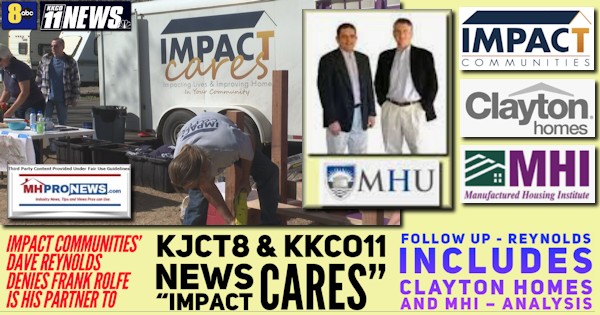
There is an evidence-based case to be made that Rolfe is posturing, paltering, and blowing smoke so as to attract his next potential students at a for-profit boot camp.
Let’s note, MHProNews believes in free enterprise and the profit motive. But free enterprise must be tempered in a manner that actually achieves what Rolfe himself said: “I’m trying to help people, but I’m also trying to, by absence of not helping them, hurt them.” Rolfe has called out Nathan Smith, former MHI chairman, and MHI itself for hypocrisy (see example below). Can’t Rolfe see that his pointing finger has three more fingers pointing back at himself and Dave?
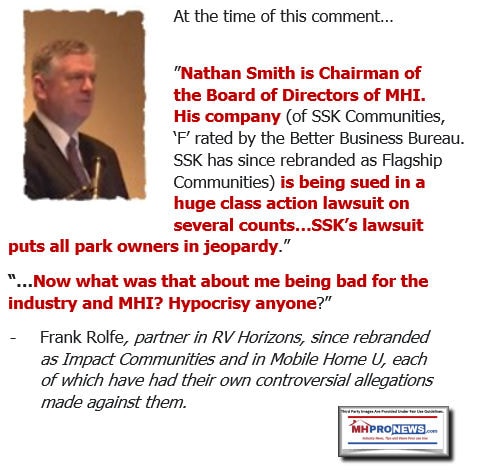
2) Frank Rolfe, Andrew Keel, ROC USA, and several individuals connected with the Manufactured Housing Institute (MHI) were contacted with respect to the remarks above. ROC USA was the only one that has responded, and they did so swiftly.
While last week was a travel week for Paul Bradley, an official at ROC provided a reply. This segment of the interview between Keel and Rolfe was specifically asked about.

Here’s the problem with that. For the residents to buy it, they have to form a formal homeowners association. They have to elect officers, they then have to agree they want to start the process, and then they have to get the money to do all the third party reports and all of that stuff. It all falls apart where they have to get the lending, which requires a personal guarantee from another nonprofit like the Ford Foundation, Rockefeller Foundation.
They’re not idiots, and they’re not going to personally guarantee the park unless they feel 100% they’re going to get paid back. If you look in all of America, I think the residents only buy an average of a park a month. It’s a meaningless number. I once ran the numbers. Of all transactions in a given year, the residents buying the park is 0.00001%. It’s so ridiculously nothing. You could instead put in things like the residents have the right to have a lunar lander coming from another planet to to buy it. It’s stupid. …”
Here was the emailed reply from ROC USA to MHProNews.
- “Factually false and easily refuted.”
- “This is one of our nation’s largest sources of deeply affordable housing, and it’s deeply affordable without any federal subsidy,” says associate professor of sociology Esther Sullivan at the University of Colorado Denver and author of Manufactured Insecurity: Mobile Home Parks and Americans’ Tenuous Right to Place. http://www.esthersullivan.net/
- A Transform Finance report cites ROC USA as a community capital provider that provides “meaningful input and governance roles for grassroots stakeholders.” The report provides numerous local examples of Community Power and Wealth Building organizations but calls out ROC USA for demonstrating “what it looks like on a national scale.” https://www.transformfinance.org/blog/participatory-investment-report
When Rolfe says “and no one ever has the ability to exercise it,” meaning the right of first refusal, that was debunked some years ago in a video interview Paul Bradley of ROC USA.
Part of the irony of Rolfe’s remarks referenced in Part II #1 above is this. The ROC model provides residents living in a land lease community that was charging too little to keep up with inflation and infrastructure with a path toward both a better community and better living for the residents without the same stress that often leads to what has been called economic evictions. As the flashback, but still relevant, interview below reflects, sellers can sell their property at market rates via the ROC method and often on market timetables. If infrastructure is needed to make a deal work, Bradley explained how that has been accomplished.
Why Manufactured Home Community Owners may Consider the ROC Option.
So, an evidence-based argument can be made that Rolfe and Keel early in the interview provided in Part I above may have tried to hobble ROCs. The impression of possible clients from having a more accurate and complete picture of ROCs, in their view, is limiting a de facto competitor. As Rolfe himself admitted, they have sold properties to ROCs. Note too that at the time, ROC had as many lots as what Rolfe says he and Reynolds currently have in their portfolio.
MHProNews has for a decade or so made the point that every source should be treated with a separate the wheat from the chaff mindset. Are there things to be learned from Rolfe? Yes. But that may not always be what he and his partner want someone to learn.
Again, the irony and apparent hypocrisy in Rolfe’s remarks are replete, and Keel did nothing to expose them.
Indeed, despite the fact that he said they aren’t endorsing the person interviewed, Keel thanks and commends Rolfe repeatedly in the interview. More on that further below in the Q&A with Copilot and more.
When Rolfe said the number of conversions to ROCs is a ‘meaningless’ number, it certainly isn’t meaningless to all of those residents who suddenly gain control of their own futures. That is why it remains a popular option. Should the right of first refusal time frames be longer? That’s a separate topic.
But another ironic point is that ROC apparently have more sites they provide technical support for management than Rolfe and Reynolds do in their portfolio. Per ROC USA on this date.
Communities Converted to Resident Ownership: 325
Member Households Served: 22,446
ROCs financed by ROC USA Capital: 113 ($423.1 Million)
Speaking of portfolios, Keel needs to provide consistent information about Rolfe and his partner. Are they number 5 or number 6? Doesn’t Keel read his own content for apparent contradictions?
Back to the ROC theme. The interview with resident-leader Kim Capen posted below is the ROC story from the resident’s perspective.
Kim Capen Medville ROC USA Manufactured Home Senior Community, Goffstown, NH from Manufactured Home Living News. Note that ROC’s Bradley has his own mother living in a manufactured home. Would Rolfe and Reynolds have their family living in a property that they owned/managed? If so, would they treat family as he does his residents?
3) Rent control is something to be feared, according to Rolfe and Keel. “Rent control is kryptonite to the manufactured home industry,” said Rolfe. While Rolfe asserted that red states are safe, that’s not quite so.
Additionally, there is a push for national rent control. A possible poster-child for rent control advocates in the manufactured home community sector is the Rolfe-Reynolds business model that Keel is helping promote via this interview.
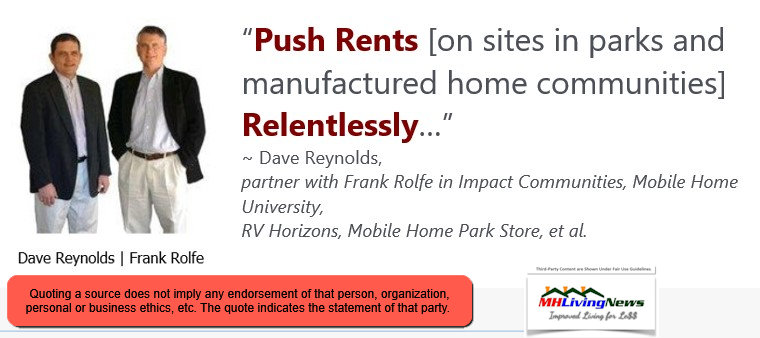
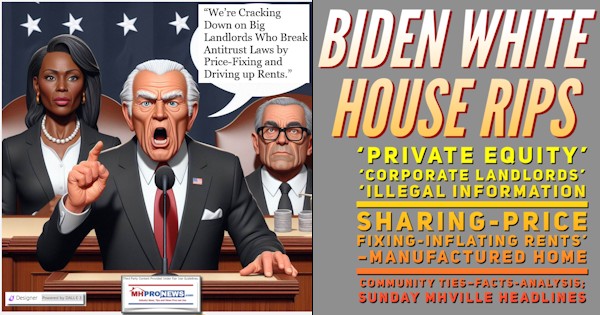
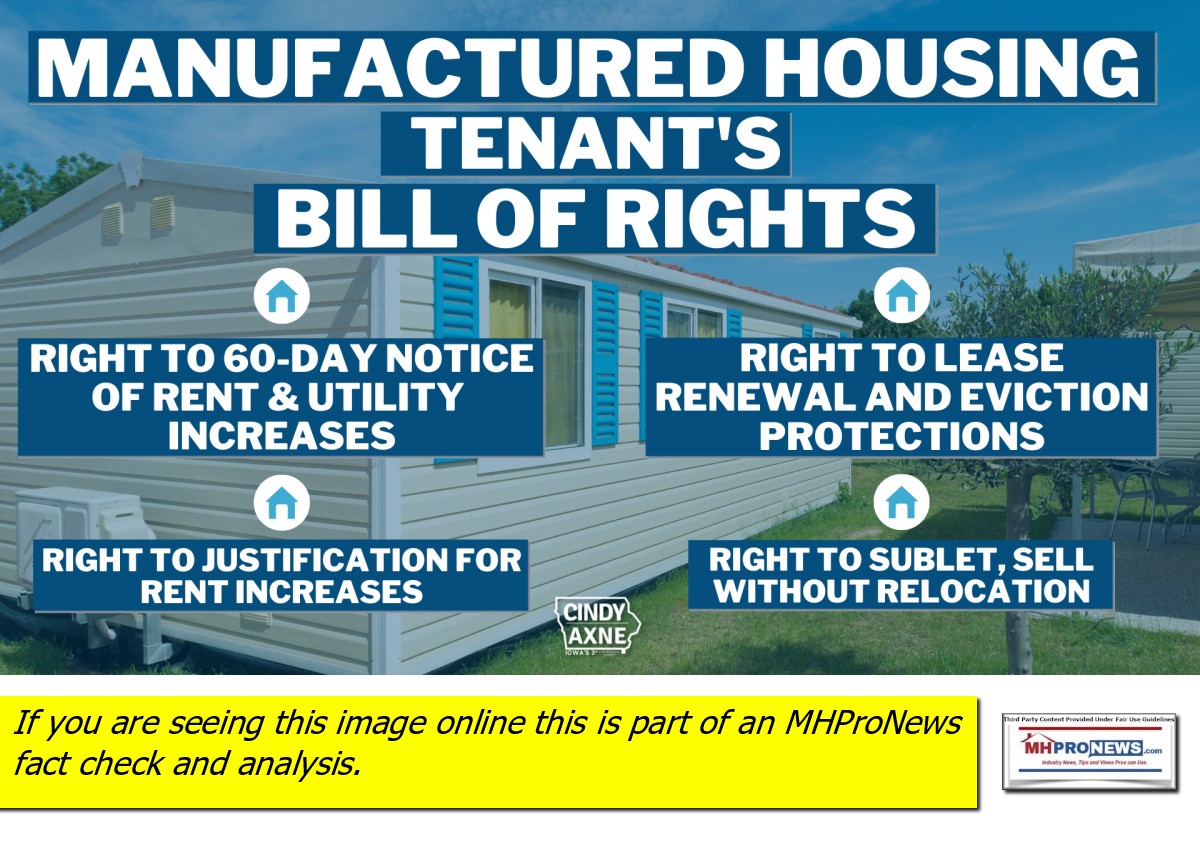
Colorado, the longtime home of Rolfe’s partner Dave Reynolds, is a state that has passed legislation that considered the duo’s business model as well as others who are often MHI members.
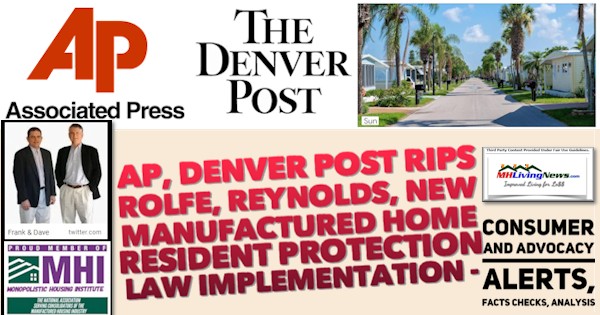
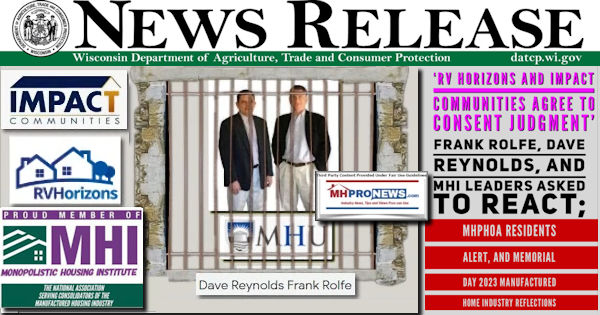
While “Frank and Dave” are hardly alone in causing negative headlines, they are part of the mix which begs the question, where is MHI on enforcing their so-called code of ethical conduct? More on that further below.
As a relevant note, on the date shown below, about 40 percent of the images in the search for Frank and Dave were on either MHProNews and/or MHLivingNews. Our publications have become a key source for evidence-based insights on a range of topics, businesses, organizations, and personalities as it relates to manufactured homes, affordable housing, and public policy. Rolfe and his partner, along with others in his firm, are per sources deemed reliable, routine readers of MHProNews/MHLivingNews.
Note: to expand this image below to a larger or full size, see the instructions
below the graphic below or click the image and follow the prompts.
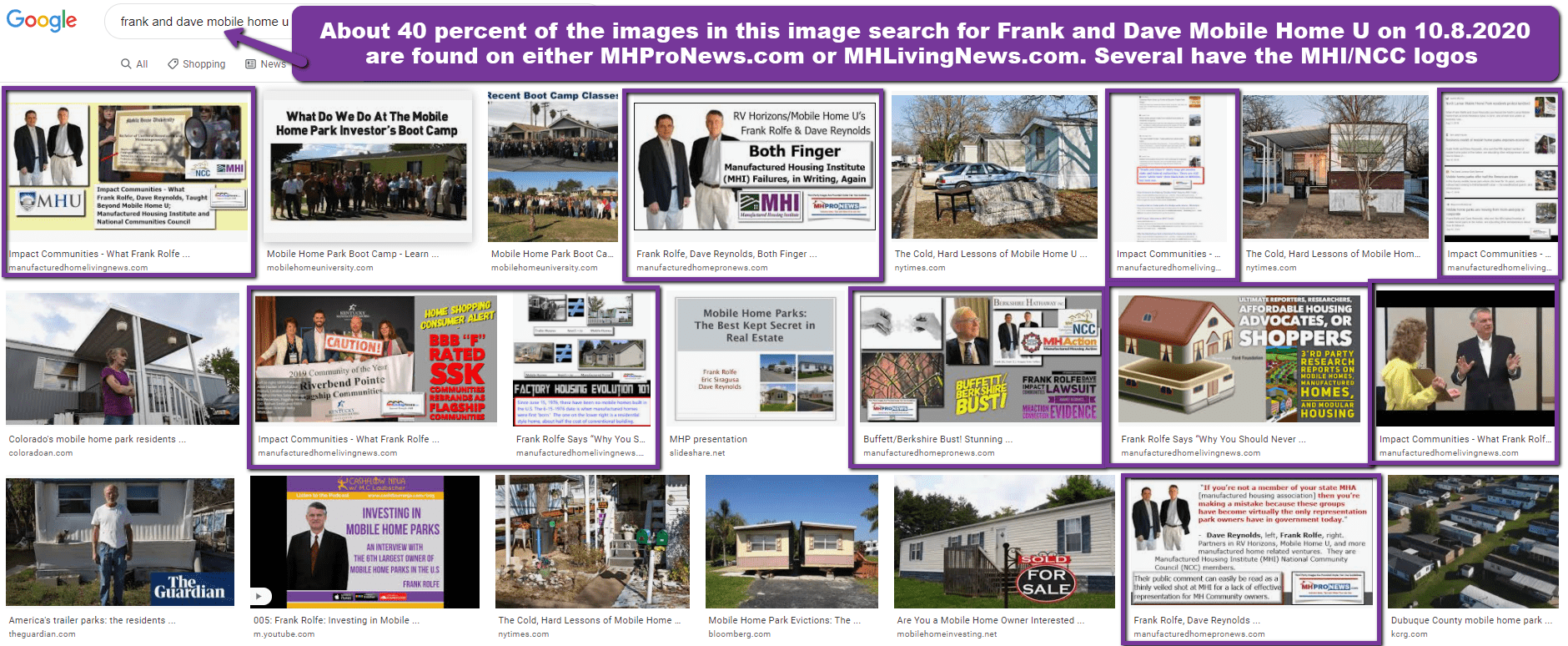
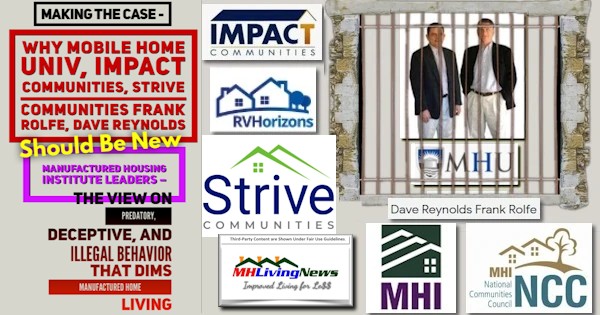
4) Rent control is hardly the only regulatory or legal issue facing certain ‘predatory’ business owners. Rolfe and a colleague, Cody Dees, have attempted to deflect from the rising concerns about price fixing, antitrust, and other issues related to aggressive rules and steep hikes in site fees. See that report linked below. That antitrust and price-fixing notions were not a subject that Keel and Rolfe properly raised.
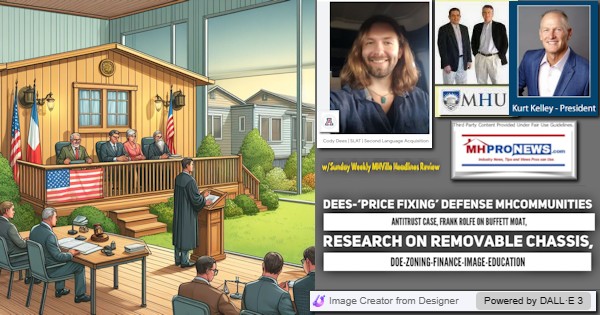
5) But Rolfe did make some interesting, and arguable at times, valid observations too. Consider these points about MHI. Note that the term “the industry” has been used by Kevin Clayton as well as Rolfe to mean the Manufactured Housing Institute (MHI), even though MHI does not represent the entire industry, as the Manufactured Housing Association for Regulatory Reform (MHARR) reminded federal officials.
Per Rolfe, in the interview in Part I, above.

All this low hanging fruit, they didn’t do it. They blew the whole thing for cross mods [SIC].
I totally blame the industry for that misadventure. If they had only done that, their sales would be so much better. It’s a real mess.”
When Rolfe put phrase “the industry” in with CrossMod, it was clearly a reference to MHI. MHARR has objected to CrossMods for years, as has the Modular Home Builders Association (MHBA).
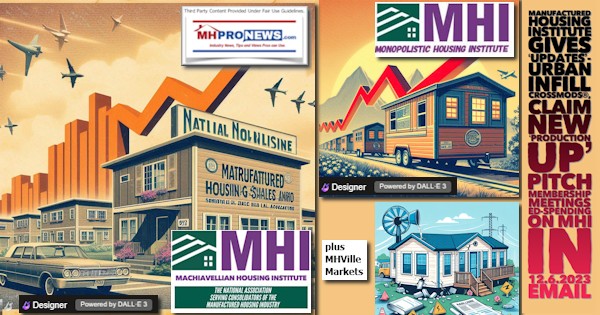
Rolfe being on the record in opposing CrossMods helps those who have off the record made similar observations about the failure of the scheme.
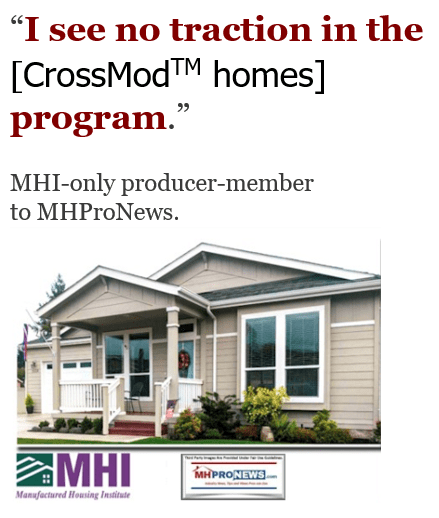
Rolfe is a community guy. He didn’t really discuss street retailing. He did mention the decline in manufactured home production and shipments. “All this low hanging fruit, they [i.e.: MHI leaders] didn’t do it. They blew the whole thing for cross mods [SIC].”
The case can be made that CrossMods isn’t the only reason that MHI “blew” it. Consolidation is the apparent goal of MHI, and they decline to debate or respond to that evidence-based allegation. Limiting lending, limiting production, and limiting new community development are all features of that vexing story.
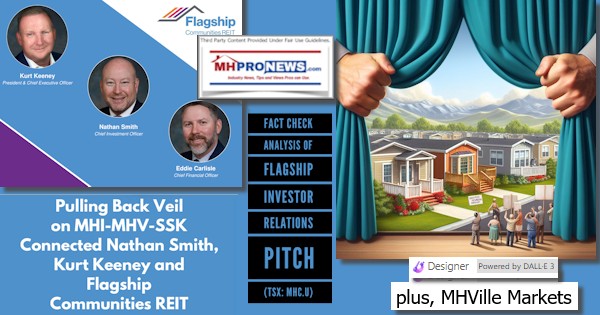
6) On the topic of manufactured home sales, Rolfe doesn’t say what the breakdown was of new vs. used sales. He makes a case that is arguably against the interest of producers of new homes, while correctly pointing to the foundation challenge with regulators in some states, which apparently MHI and their state association affiliates in several areas have apparently not successfully addressed.
That noted, Rolfe said they had a record year. He pointed to increased demand post-Covid19. When he asserts that they sold 1200 homes, doing the math, among 170 communities, that would be 7.06 homes per month, so about one home sold on average per community every 5.5 months. How is that impressive?
7) Rolfe mentioning ‘articles’ or ‘quote’ from Ben Carson is an apparent reference to MHProNews and MHLivingNews. While Rolfe is muddled on the above to some extent (HUD’s and state regulations should be properly enforced, not ignoring factors like the Manufactured Housing Improvement Act of 2000 (MHIA or 2000 Reform Law) and enhanced preemption, nor being too zealous on issues such as foundations. The paraphrase “I blame MHI” below is from the interview above.
8) Another topic worth exploring is UMH Properties, et al. Rolfe has a point when he said that UMH are different than Sun and ELS. True enough. MHProNews has made a similar point in several reports. While Rolfe says he knows nothing about them, he seems to know a little, which might well be from reading here, but perhaps not enough. Or perhaps he is trying to push his agenda more than his knowledge? Whatever the motivations may be for his expressions on UMH, they are directly challenging much of what Rolfe, Sun, ELS, Flagship, RHP, and others have been pushing. Oddly, Rolfe may have been in the same MHI/Cementing room when Sam Zell said that he wanted to limit rentals, but he admitted that ELS does rentals too. Restated, Rolfe is either playing dumb and/or is somewhat misinformed. While UMH’s rental program is more aggressive than others (see below), they assert success that challenges the notions Rolfe is expressing in the interview with Keel.
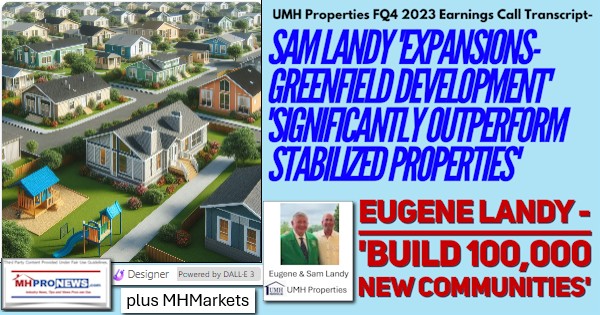
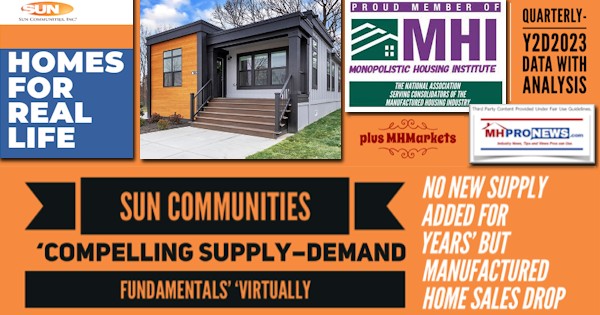
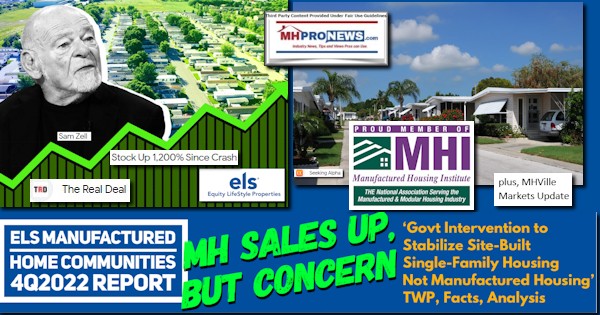
9) Rolfe’s references to site fees (a.k.a. “lot rent” or “rents,” etc.) bears refinement. Compare his remarks with facts and the insights found in reports like those linked above and below.
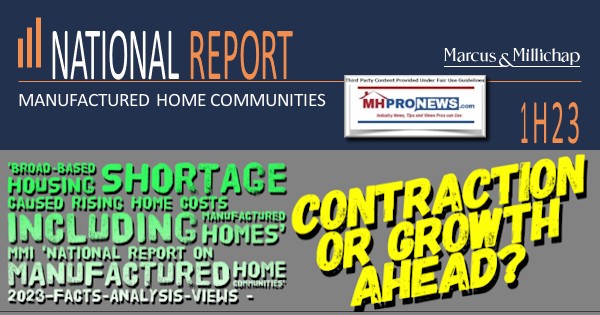
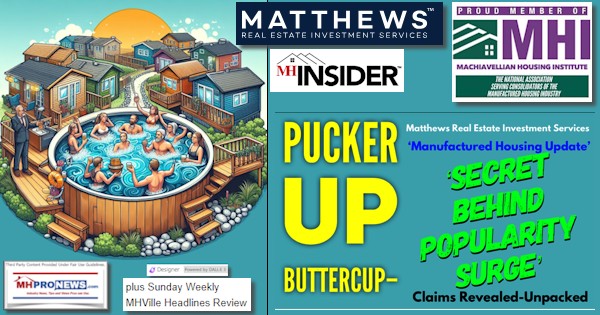
10) Keel’s website mentions Lonnie Deals and apparently some self-financing of homes being sold. Per an MHI linked attorney, those practices may be illegal or contrary to what regulators are allowing in practice. See this still relevant report linked below. Despite a case in New York, there are some that still push lease to own and similar plans.
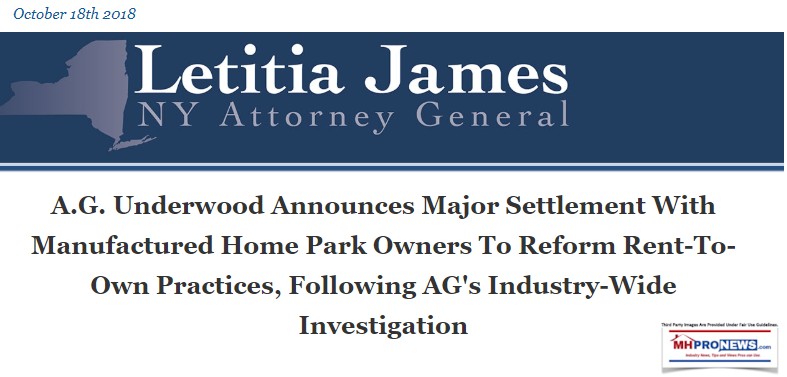
See the NY AG’s document as a download linked here.
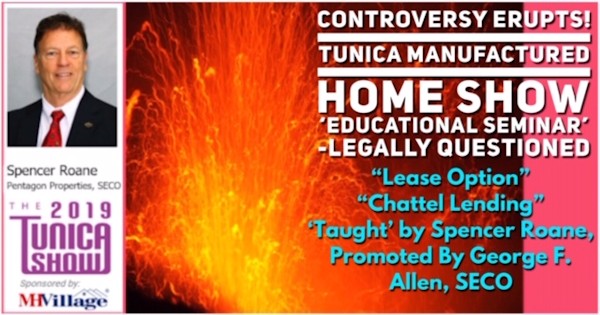
So, while Keel is being promoted by MHInsider, and in essence by Rolfe, he too was or is potentially involved in business practices that may be deemed illegal.
Because as Rolfe noted, MHI “blew” it on those finance reform and HUD opportunities during the Trump era. As MHProNews reported at the time, what reforms to Dodd-Frank and the Safe Act that did occur, could have taken place years before by agreement with resident groups. Meaning, years could have been saved in achieving the same outcome.
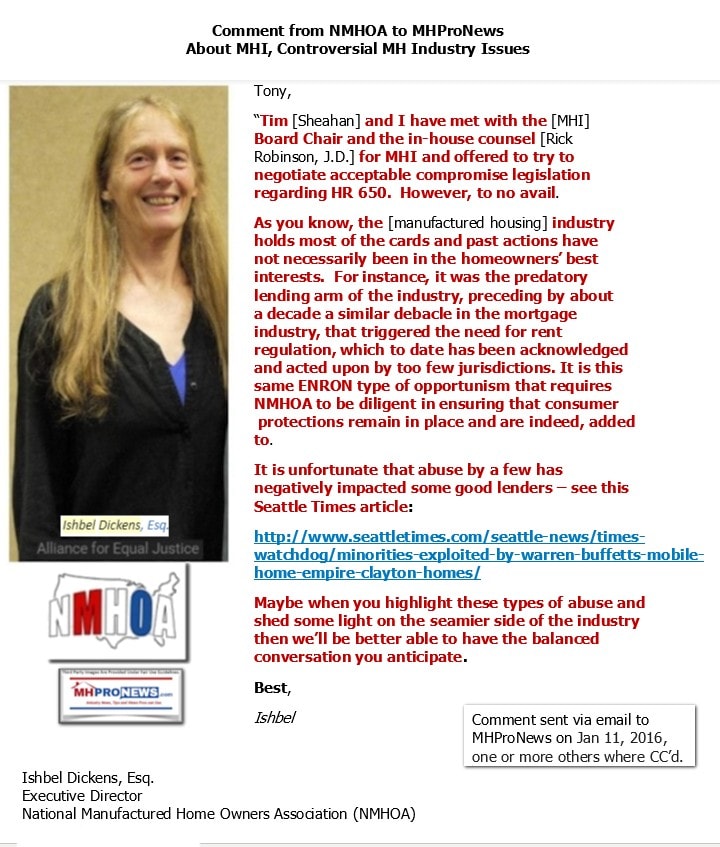
For those who source their news only through sources that say only what they want to hear or see, the risks are numerous. While Rolfe is wrong on some things, he is not wrong in saying that the nation is a ‘mess’ when it comes to predictability of the rule of law, a topic MHProNews has addressed previously and repeatedly.
11) But balance must be achieved in a range of issues. Among them, the problem of the ‘bad news’ that Rolfe’s and Reynold’s style of business, seemingly embraced by others at MHI, often generates.
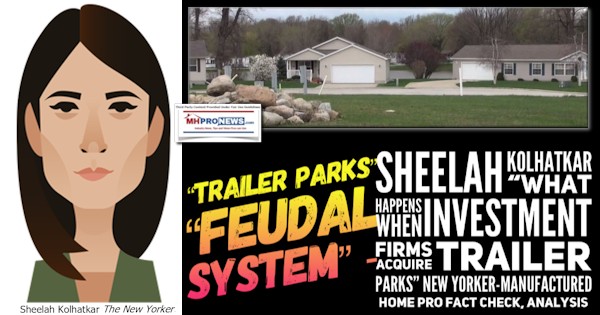
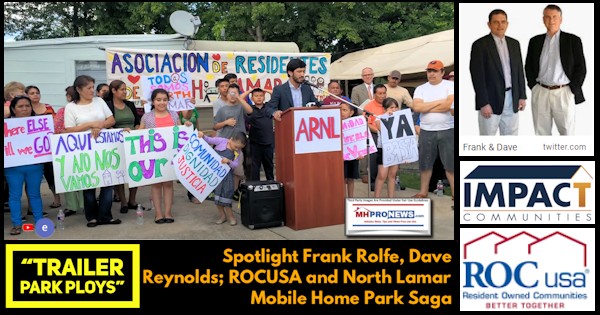
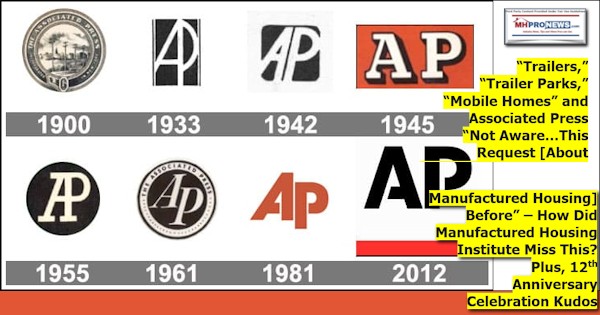
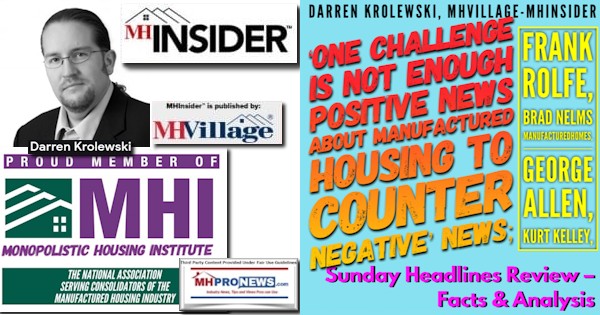
12)
Some Q&As with Bing’s AI powered Copilot on the topic of Keel, Rolfe, and the subculture in the manufactured housing community sector.
Explain the meaning or relevance of Sam Strommen’s remark: “Pernicious forces are…subsuming an industry [manufactured housing] rife with lack of oversight, and praying upon the vulnerability of [others] in a gross, incestuous symbiosis.”

- Pernicious Forces:
- The term “pernicious” implies harmful, destructive, or malicious forces.
- Strommen suggests that there are negative influences at play within the industry.
- Lack of Oversight:
- The manufactured housing industry lacks proper regulation and supervision.
- Without effective oversight, unethical practices can thrive.
- Praying Upon Vulnerability:
- Strommen asserts that these harmful forces take advantage of vulnerable individuals.
- This vulnerability could stem from financial constraints, lack of information, or other factors.
- The phrase “praying upon” emphasizes exploitation.
- Gross, Incestuous Symbiosis:
- The use of “gross” here conveys a sense of something unpleasant or morally reprehensible.
- “Incestuous symbiosis” paints a vivid picture:
- Incestuous: Refers to close, interconnected relationships.
- Symbiosis: Interaction between two entities for mutual benefit.
- Strommen suggests that certain actors within the industry engage in unhealthy, self-serving relationships that harm others.
In summary, Strommen’s remark underscores the need for increased oversight, ethical practices, and protection of vulnerable individuals within the manufactured housing sector. It sheds light on the complex dynamics at play and the potential consequences of unchecked behavior. …”
13)
Copilot, I reached out to Andrew Keel directly, no response. You may recall or can scan anew the detailed antitrust and consumer law advocate report by Samuel “Sam” Strommen while he was at Knudson Law. Strommen said in part: “Pernicious forces are…subsuming an industry rife with lack of oversight, and praying upon the vulnerability of [others] in a gross, incestuous symbiosis.” In researching Keel, Frank Rolfe, Dave Reynolds, and others that operate in the manufactured home community buying and operating space, what they may call “mobile home park” or “passive” “investing,” several things have come to mind. For instance, “Mario Dattilo Show Podcast, Mario talks with Andrew Keel from the Keel Team.” Keel does a podcast. Frank Rolfe and Dave Reynolds have done podcasts, call ins, social media, boot camps, bus tours, and an array of methods for self-promotion, marketing, etc. Clearly, there are others, these are just mentioned for context. With that in mind, my question is this. Could someone reasonably describe a segment of the manufactured home community buying and operating business as a subculture within the broader manufactured home industry?

- Manufactured Home Communities:
- Mobile home parks, now more accurately referred to as manufactured home communities, play a crucial role in providing affordable housing options. These communities consist of plots of land where residents place their manufactured homes.
- Over time, the perception of manufactured homes has evolved. Today’s manufactured homes are far removed from the mobile homes of the past. They offer longer lifespans, stability, and quality construction due to industry standards1.
- Within this context, let’s delve into the concept of a subculture.
- Subculture Definition:
- A subculture refers to a smaller, distinct group within a larger culture. It shares common interests, practices, and values that set it apart from the mainstream.
- Subcultures often emerge around specific activities, lifestyles, or professions. They create their own norms, language, and social networks.
- Manufactured Home Community Operators as a Subculture:
- The individuals and companies involved in buying, operating, and managing manufactured home communities exhibit unique characteristics:
- Passion for Affordable Housing: They are passionate about providing affordable housing solutions. Their commitment extends beyond profit motives.
- Innovation and Adaptability: These operators adapt to changing market dynamics, regulations, and resident needs. They innovate to enhance community living.
- Community Building: They foster a sense of community among residents. Their focus is not just on property management but also on creating a supportive environment.
- Education and Networking: Podcasts, boot camps, bus tours, and social media engagement are tools they use for education and networking. They share insights, experiences, and best practices.
- Shared Language and Values: They have a shared lexicon—terms like “passive investing,” “cap rates,” and “value-add strategies.” Their values emphasize community well-being.
- Challenges and Advocacy: They face challenges related to zoning, regulations, and public perception. Advocacy efforts aim to improve the industry’s image.
- Camaraderie: Operators often collaborate, learn from each other, and build relationships. This camaraderie contributes to the subculture.
- The individuals and companies involved in buying, operating, and managing manufactured home communities exhibit unique characteristics:
- Distinctiveness and Identity:
- The manufactured home community operators’ subculture stands out due to its specific practices, knowledge base, and shared experiences.
- While it operates within the broader manufactured home industry, it has its own identity and ethos.
In summary, yes, it is reasonable to describe the segment of manufactured home community buying and operating as a subculture within the larger industry. Their passion, practices, and interconnectedness create a distinct community within the affordable housing landscape.”
14)
You have indicated that Frank Rolfe, Andrew Keel and others involved in that subculture are promoting affordable housing. But the Lincoln Institute’s George “Mac” McCarthy and others have alleged that lending by Fannie Mae and Freddie Mac to certain kinds of community operators has undermined affordability, isn’t that correct? The Private Equity Stakeholder Project (PESP) has named several firms as being “predatory.” Among them has been firms like those that Frank Rolfe and Dave Reynolds has been involved in, correct? ELS, RHP, Yes, and others that are Manufactured Housing Institute members have also been named in that aggressive or predatory stance, correct? Plus, there have been several price fixing and antitrust type suits launched in the last half of 2023 that specifically name several Manufactured Housing Institute member firms. Some of them have business practices akin to what Rolfe promotes in his bootcamps, isn’t that accurate? Confirm, clarify as needed, and link results.
7.14 AM ET 4.7.2024. Email to David Goch, outside attorney for MHI, requesting comment on the issues related to the interview in Part 1 and related. That email BCC’d several MHI leaders, affiliates, and their designated communications professional Molly Boyle. As of 9:22 AM ET on 4.8.2024 there were no responses, other than from ROC USA, as was shown in Part II #2 above. Note that the inquiries to Rolfe and Keel were sent days in advance of this report.

As you may recall, you remarked that the Manufactured Housing Institute (MHI) actively monitors others, including members, for remarks that disparage the association.
With that in mind, this question. There are several hits against MHI in the interview below, which was brought to my attention. We plan a report on that interview and related that will be published tomorrow morning, so we need a reply by say 6 PM ET tonight.
NEW March 2024 Interview with Frank Rolfe of Mobile Home University
This is hardly the first time that Rolfe has seemingly violated the MHI/NCC rules of ethics as well as apparently disparaging MHI and/or higher visibility MHI members. Nathan Smith is an example. I’m not aware of any action having been taken by MHI against Rolfe, Reynolds, or their companies. Care to comment?
Also, as you know, MHProNews aims to be factually accurate. It has been said that Havenpark is no longer an MHI member. If so, was their withdrawal from MHI membership caused by a rules of ethical conduct violation? Did they withdraw on their own for some other reason?
As a related point, I think it is in our mutual best interest if you provide an up to date copy of your members directory and keep those updated members list supplied to us. We’ve also requested bylaws and governing documents, which I’m told have to be provided on request.
As you may recall, we have asked questions before that MHI has not responded to. Once more, responses to those inquiries are being hereby requested. MHProNews would specifically like a response to MHARR’s 3 main bottlenecks article and our analysis of MHI’s failure to respond to this given the fact that MHI has “applauds” the New Dems housing plan.
Finally for now, we are also inviting any response to the articles linked below or any others on the MHProNews or MHLivingNews websites.
I think you know the drill, but for clarity, please email you response to me for our mutual accuracy in our planned report. Thank you.
L. A. “Tony”
[…Kovach for MHProNews]
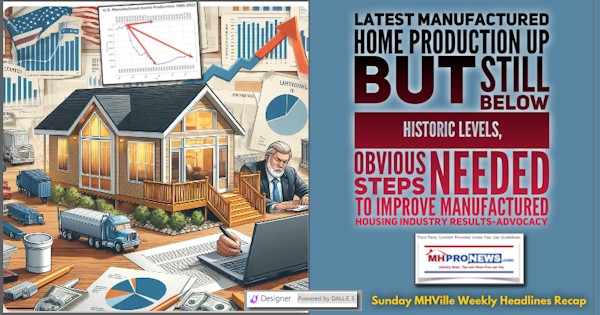
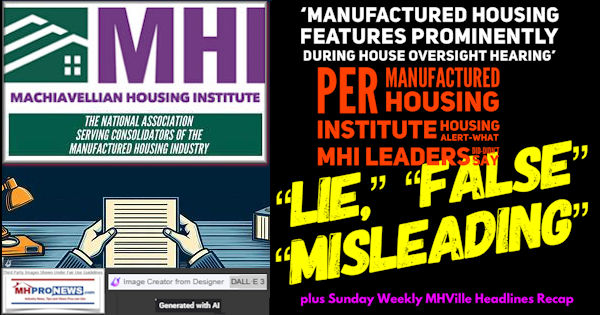
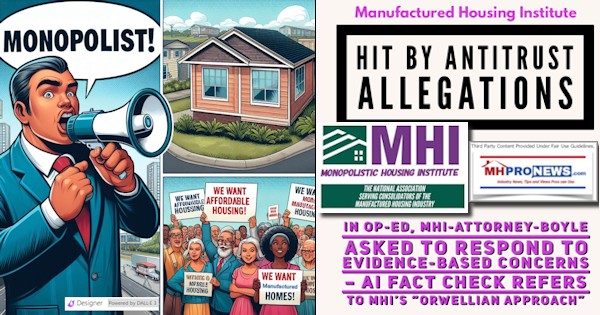
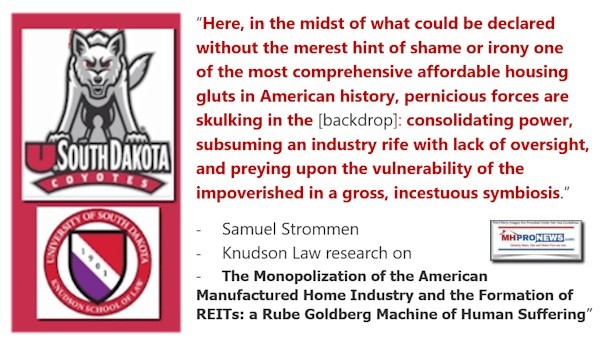
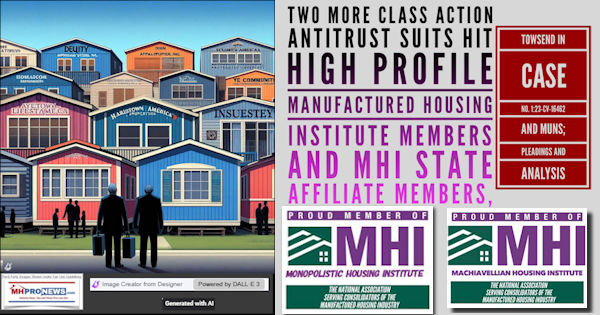


Again, our thanks to free email subscribers and all readers like you, as well as our tipsters/sources, sponsors and God for making and keeping us the runaway number one source for authentic “News through the lens of manufactured homes and factory-built housing” © where “We Provide, You Decide.” © ## (Affordable housing, manufactured homes, reports, fact-checks, analysis, and commentary. Third-party images or content are provided under fair use guidelines for media.) See Related Reports, further below. Text/image boxes often are hot-linked to other reports that can be access by clicking on them.)

By L.A. “Tony” Kovach – for MHProNews.com.
Tony earned a journalism scholarship and earned numerous awards in history and in manufactured housing.
For example, he earned the prestigious Lottinville Award in history from the University of Oklahoma, where he studied history and business management. He’s a managing member and co-founder of LifeStyle Factory Homes, LLC, the parent company to MHProNews, and MHLivingNews.com.
This article reflects the LLC’s and/or the writer’s position and may or may not reflect the views of sponsors or supporters.
Connect on LinkedIn: http://www.linkedin.com/in/latonykovach
Related References:
The text/image boxes below are linked to other reports, which can be accessed by clicking on them.’
